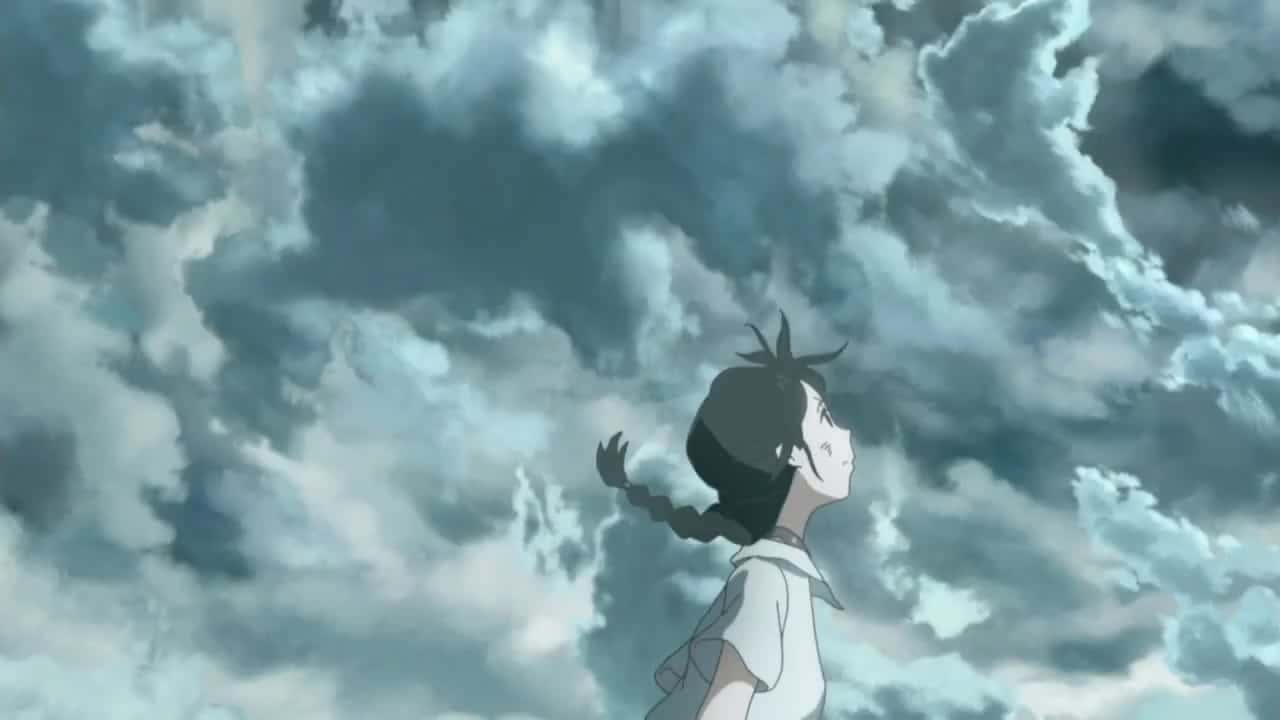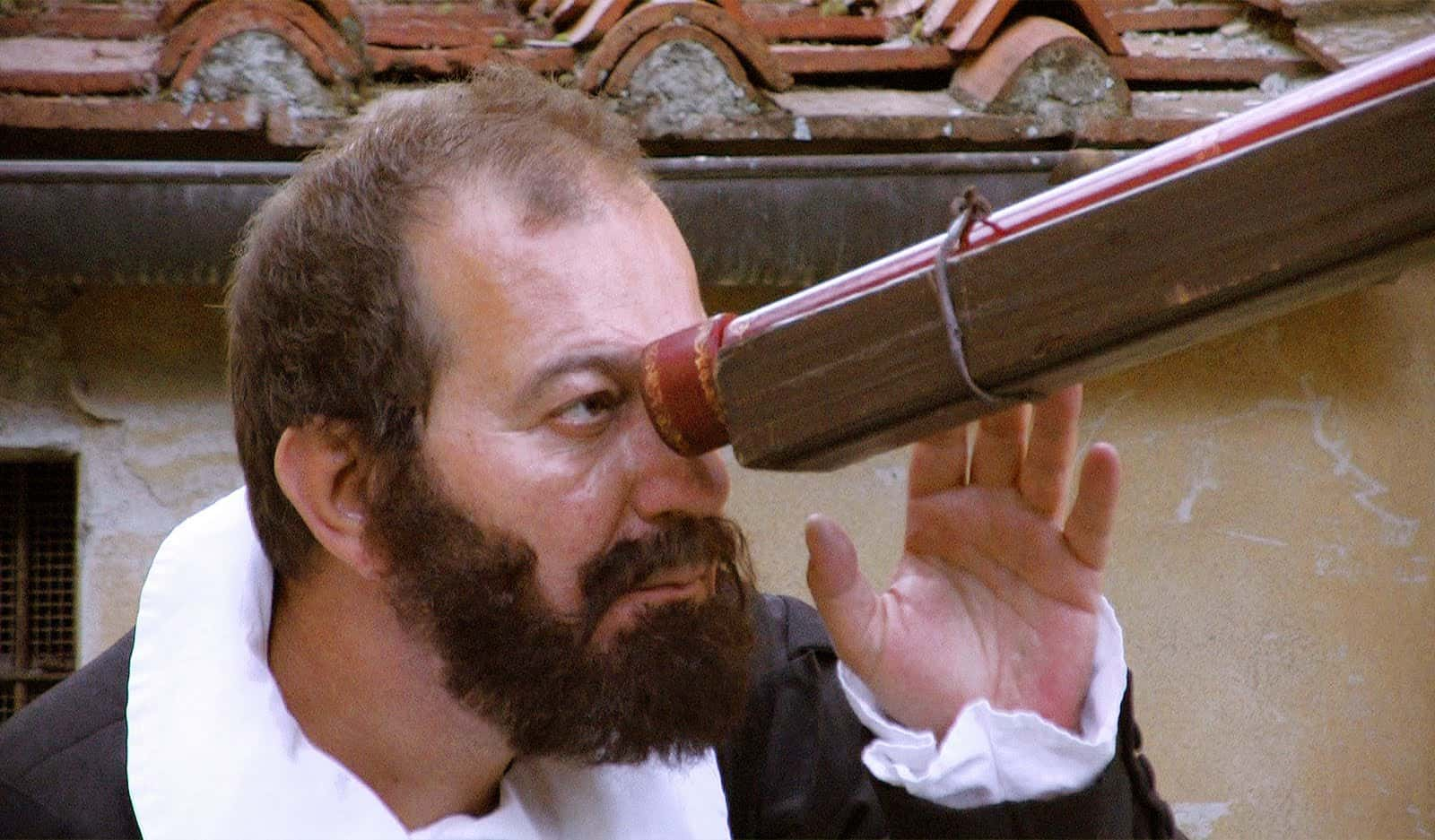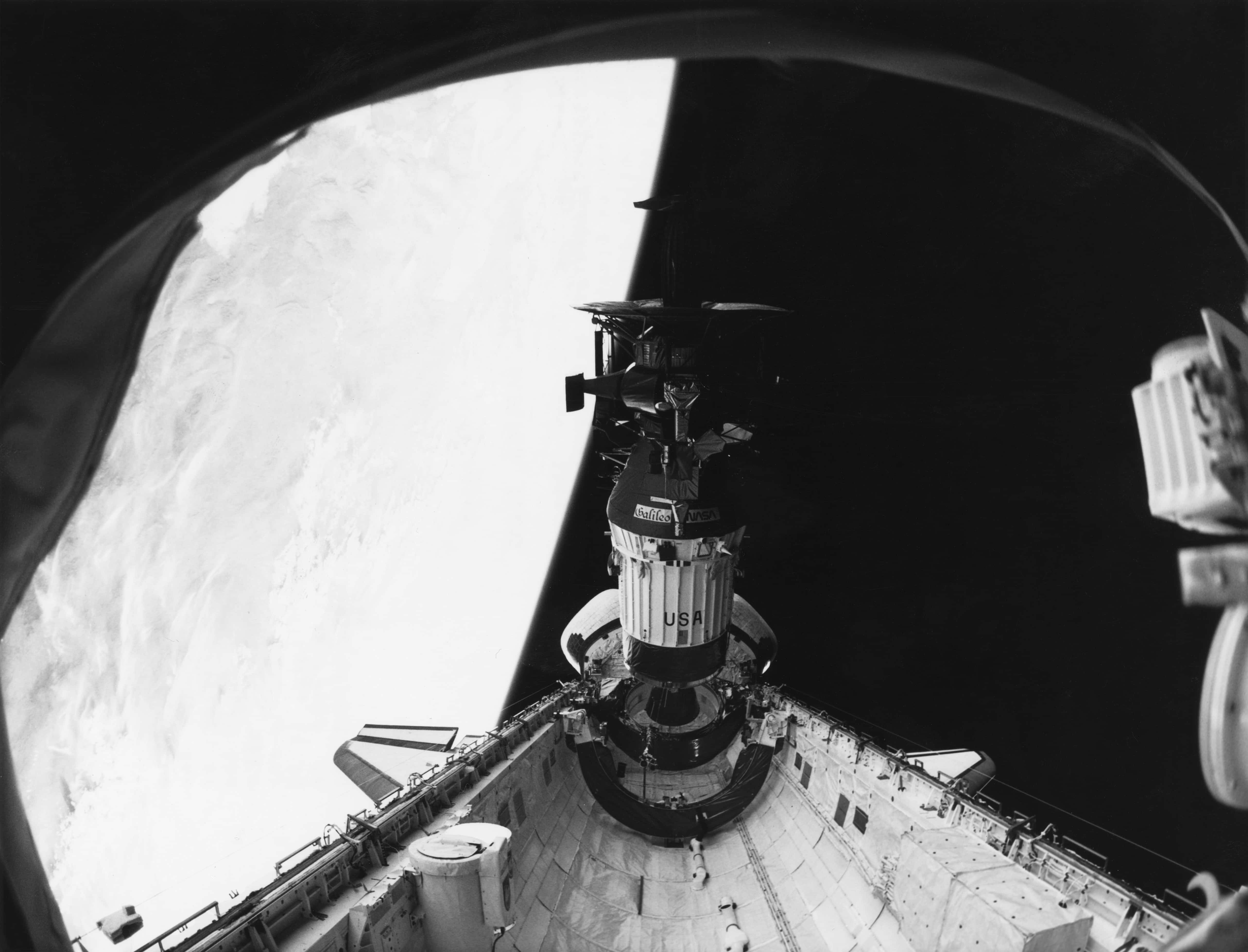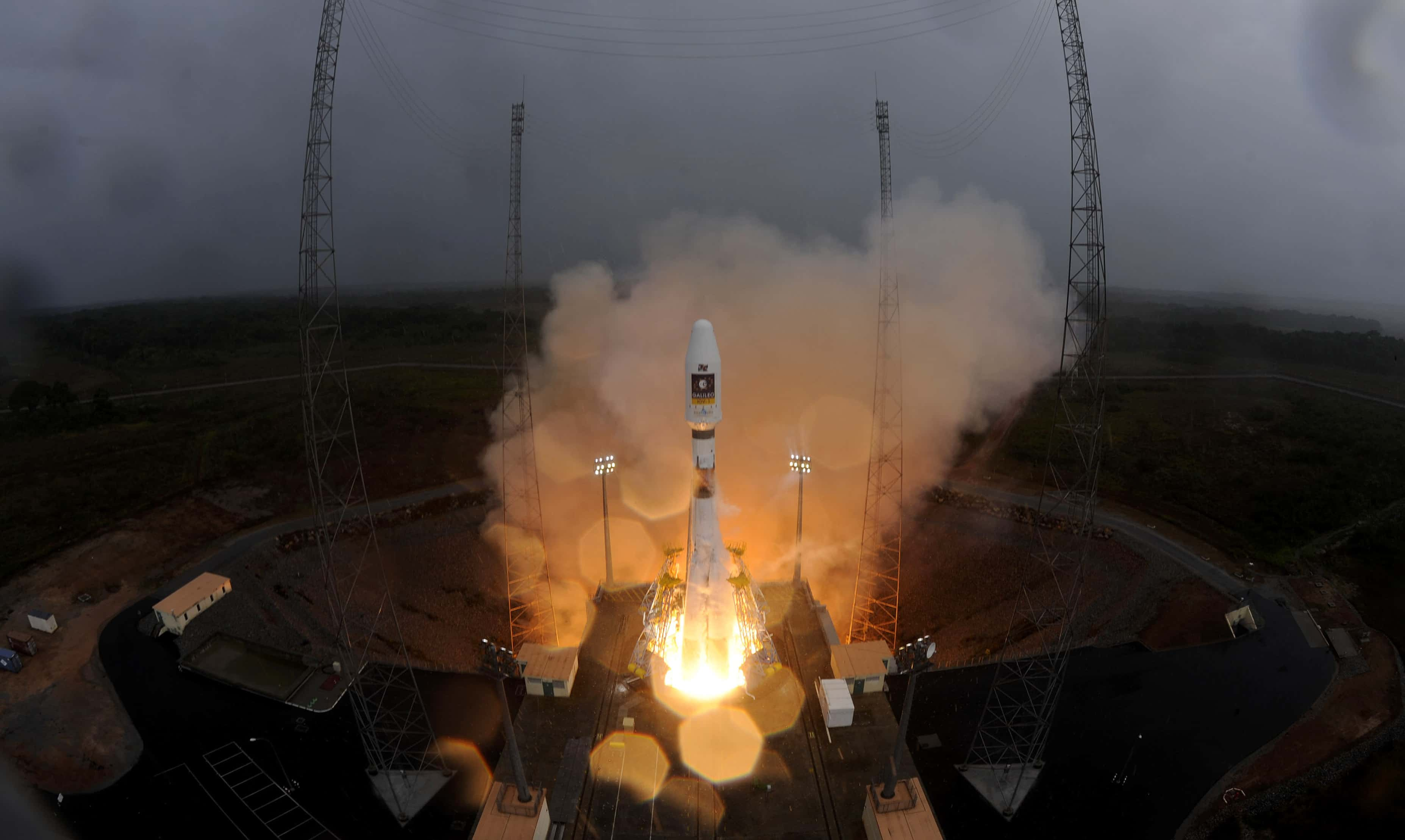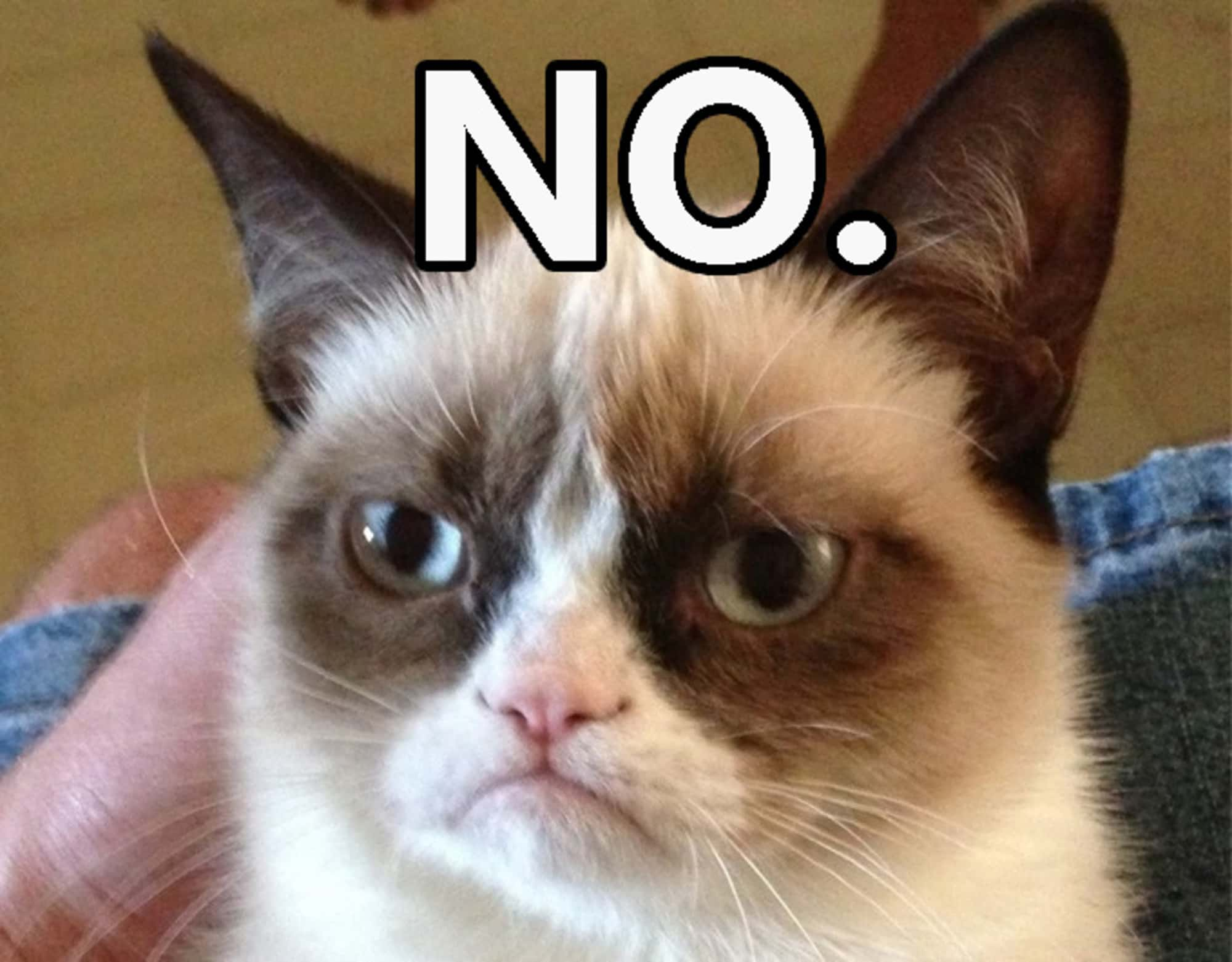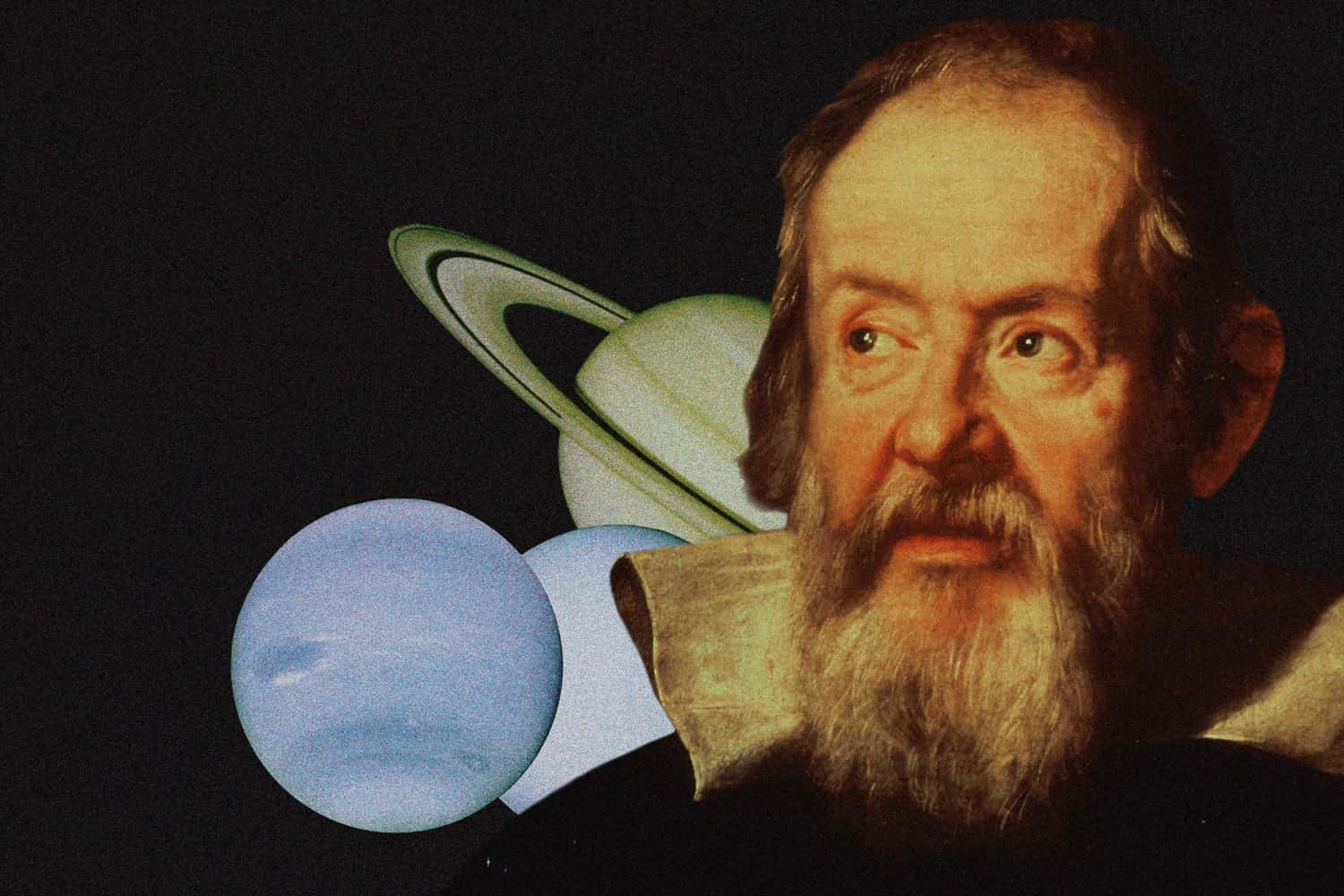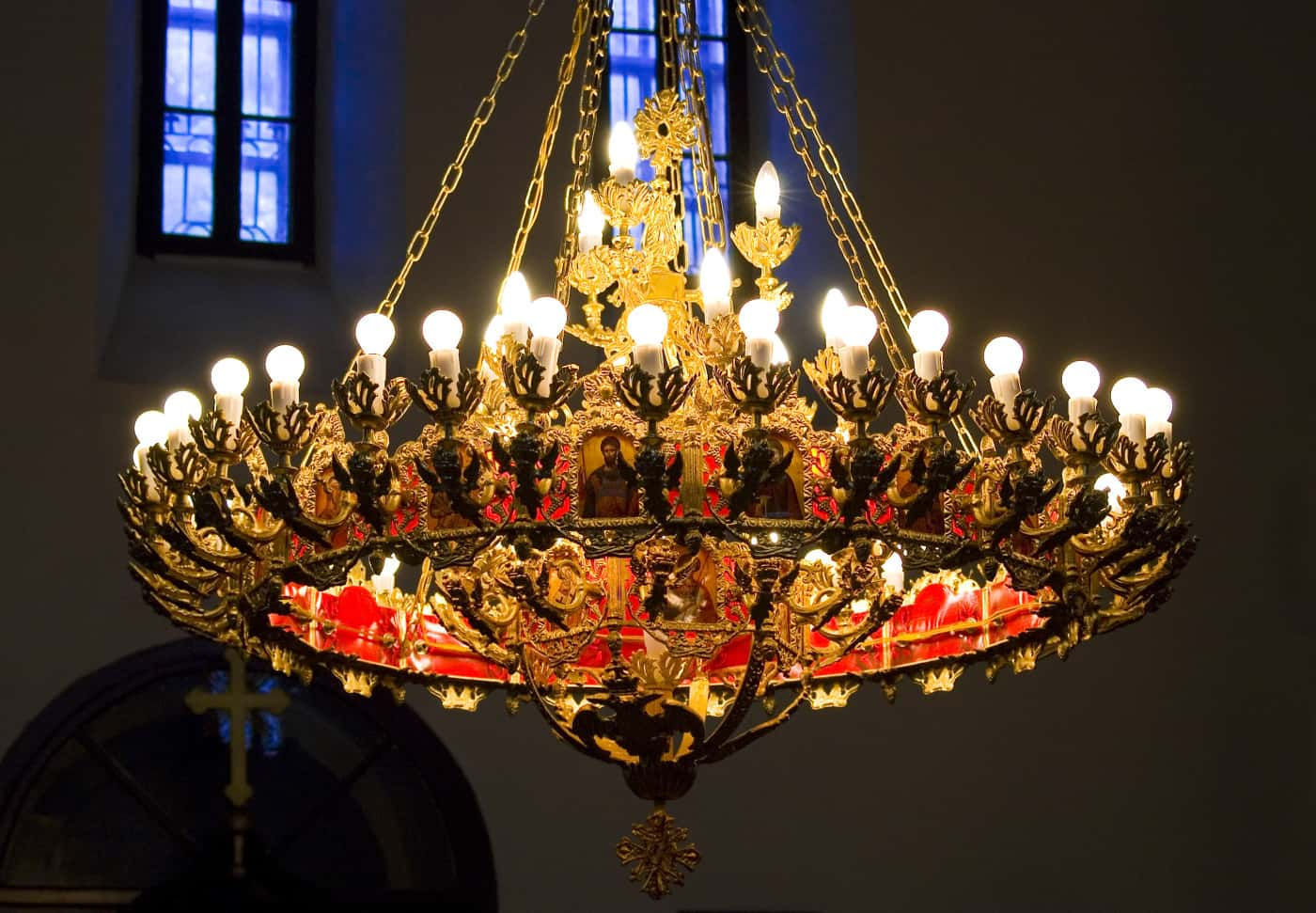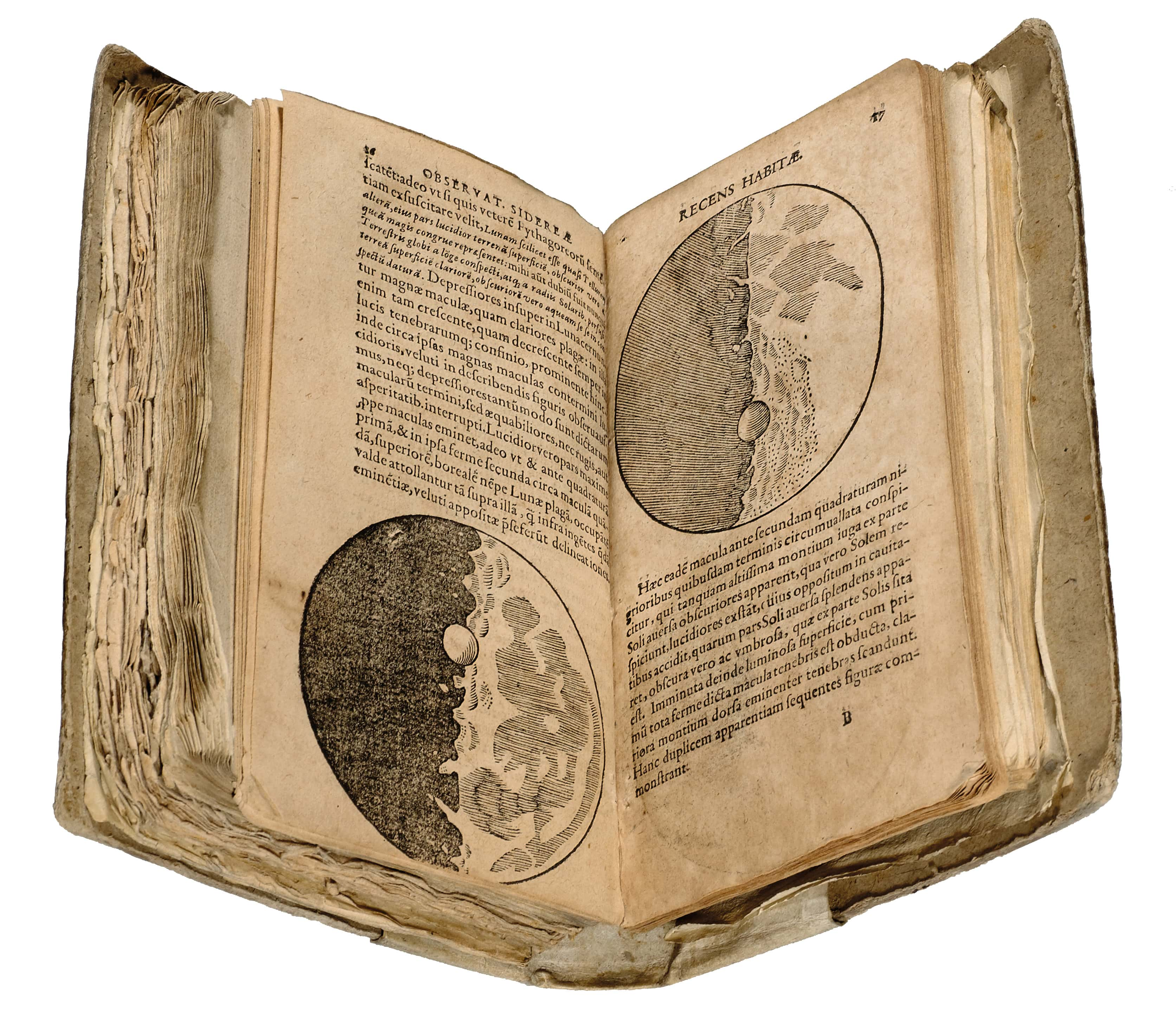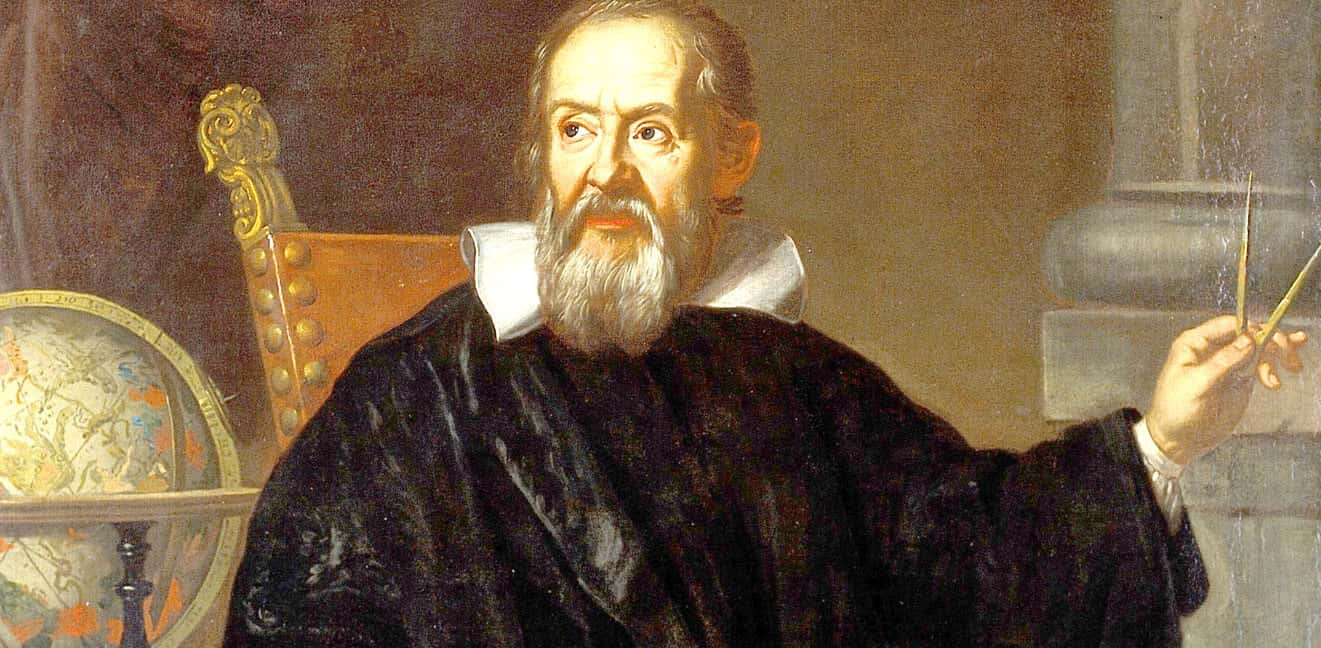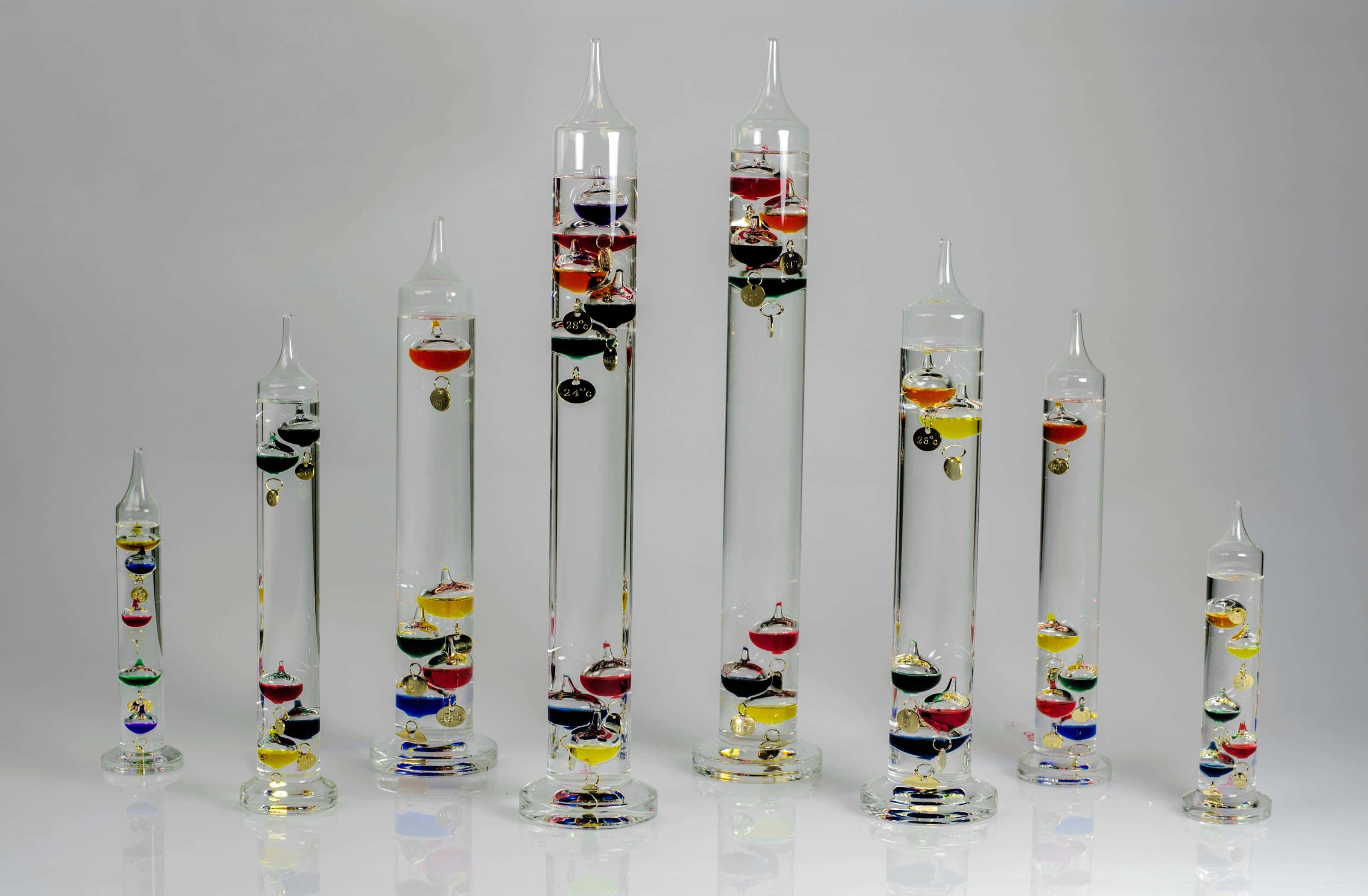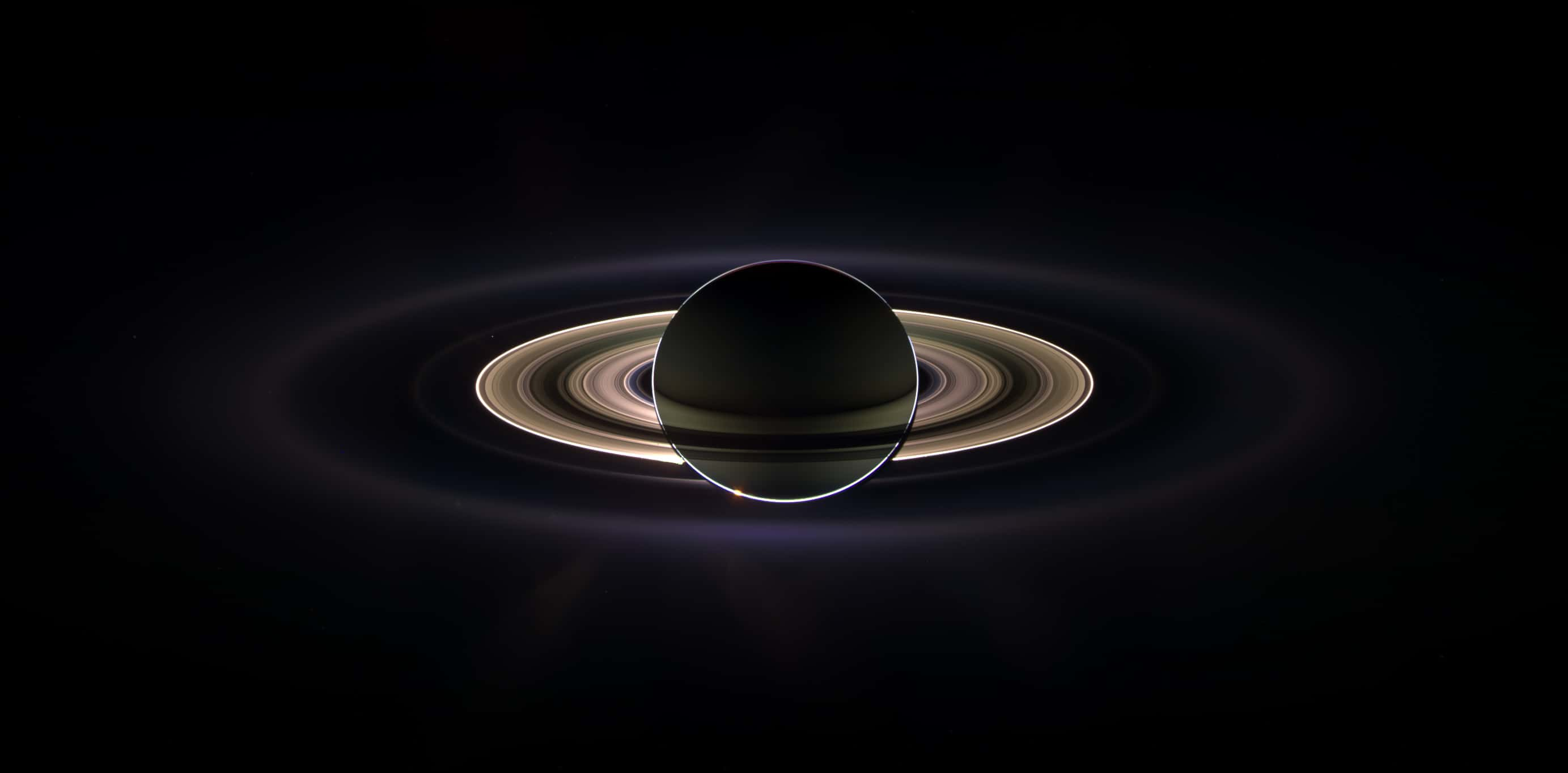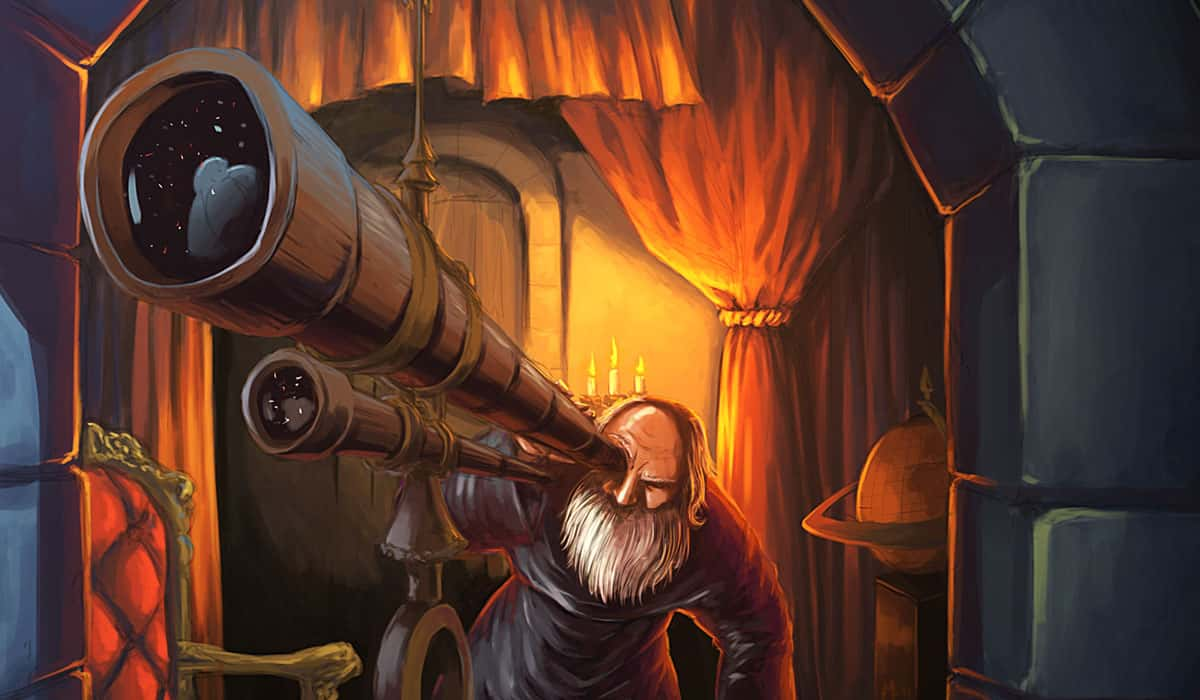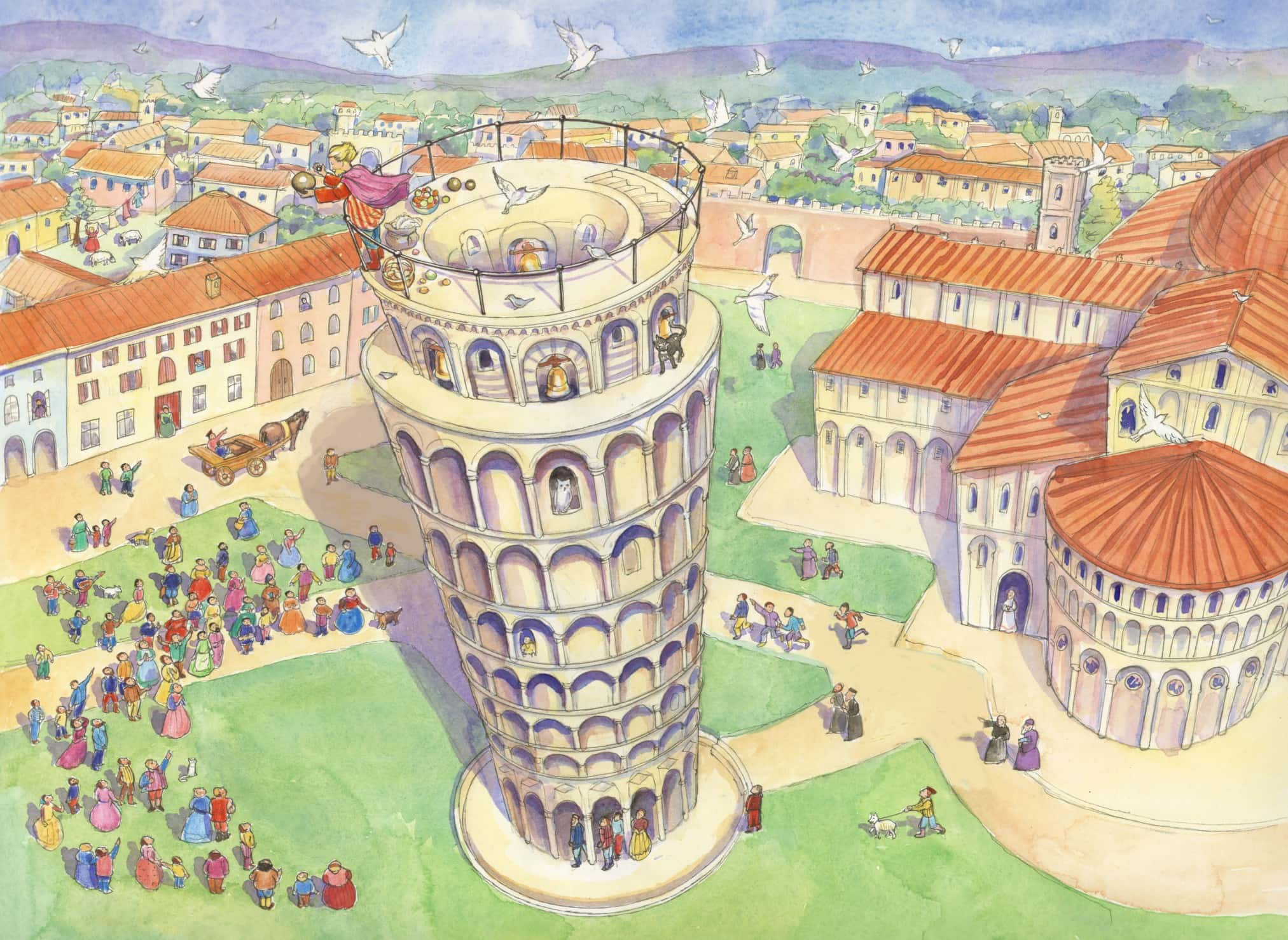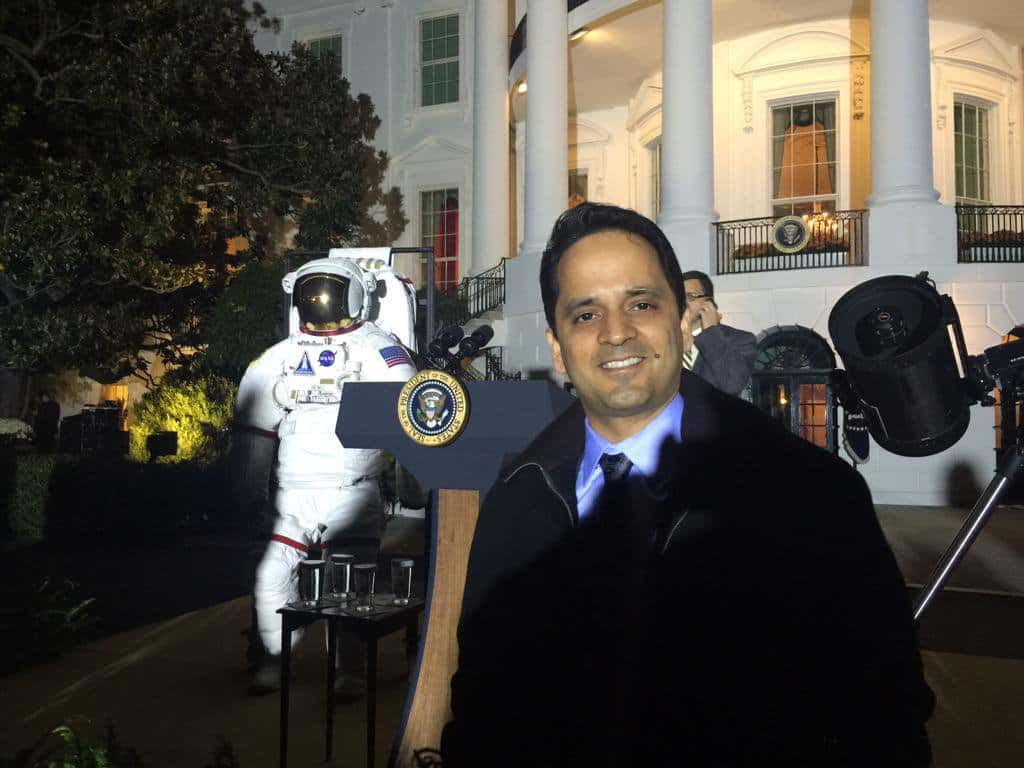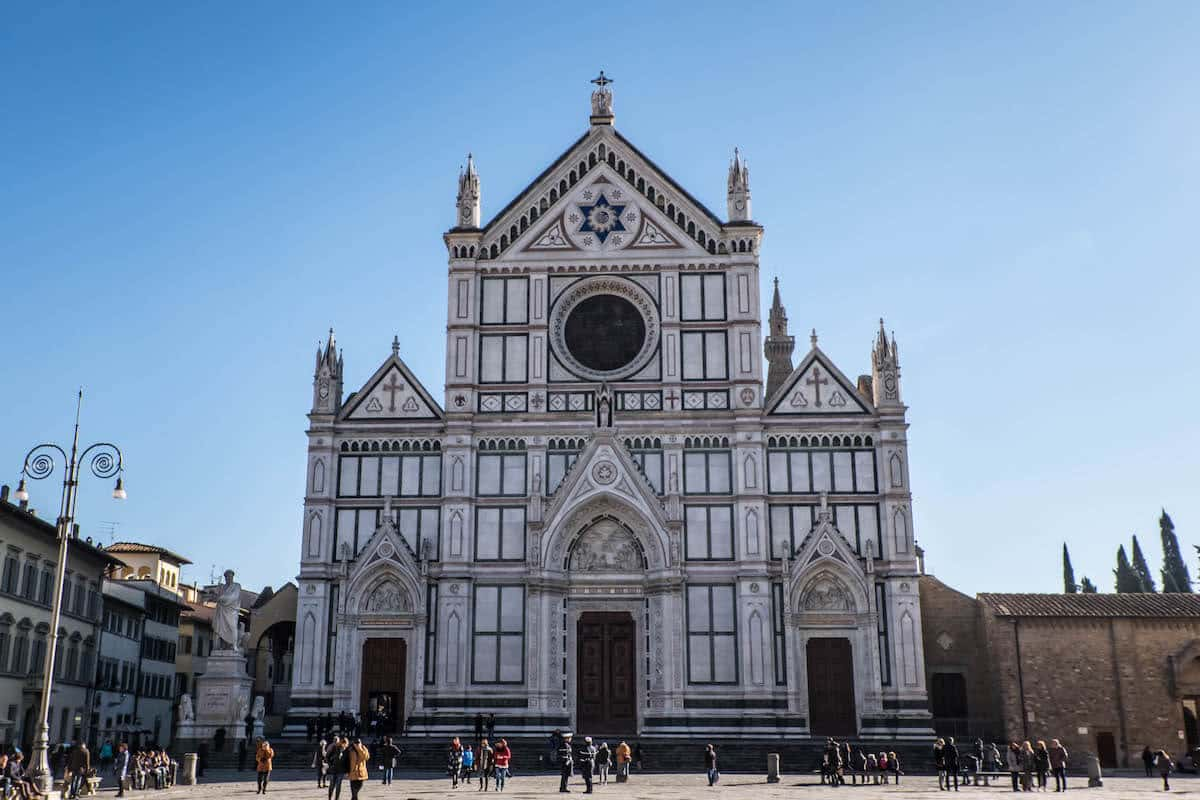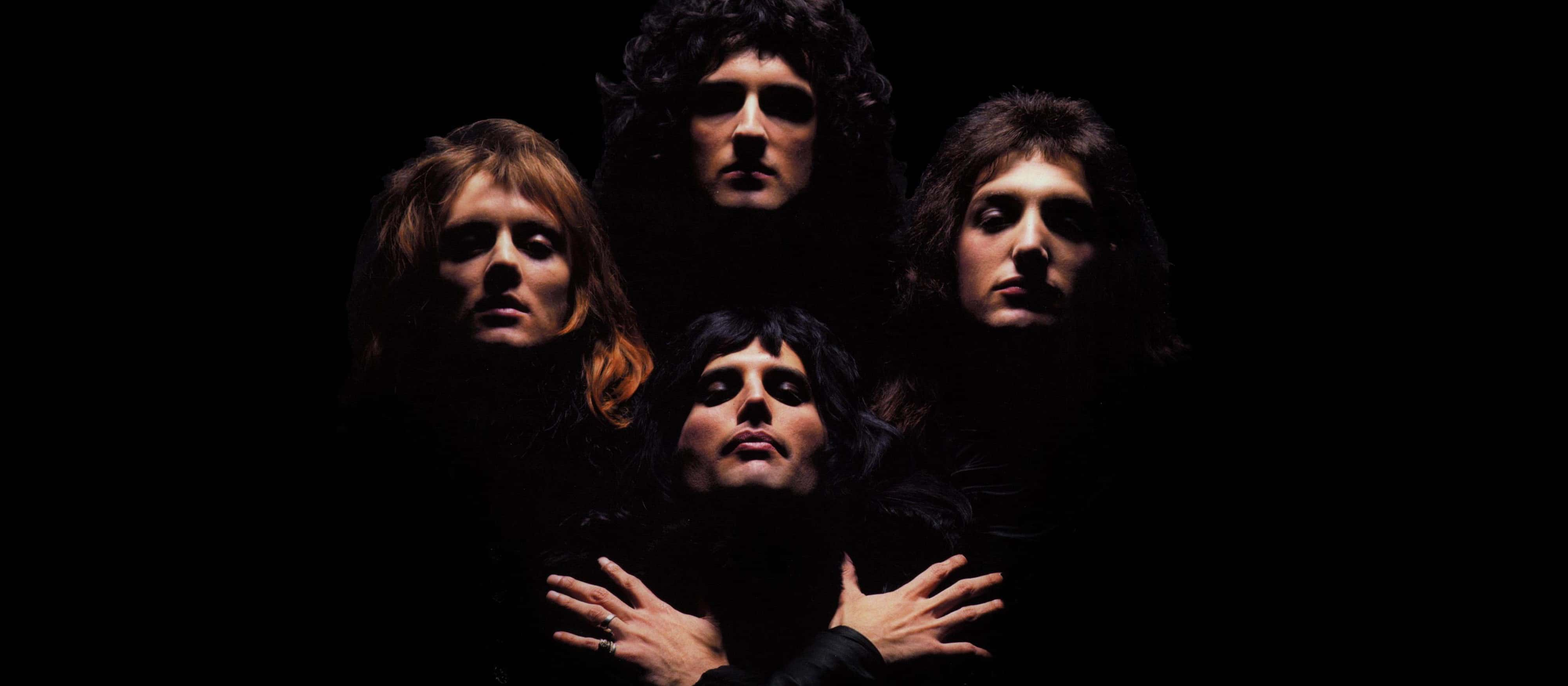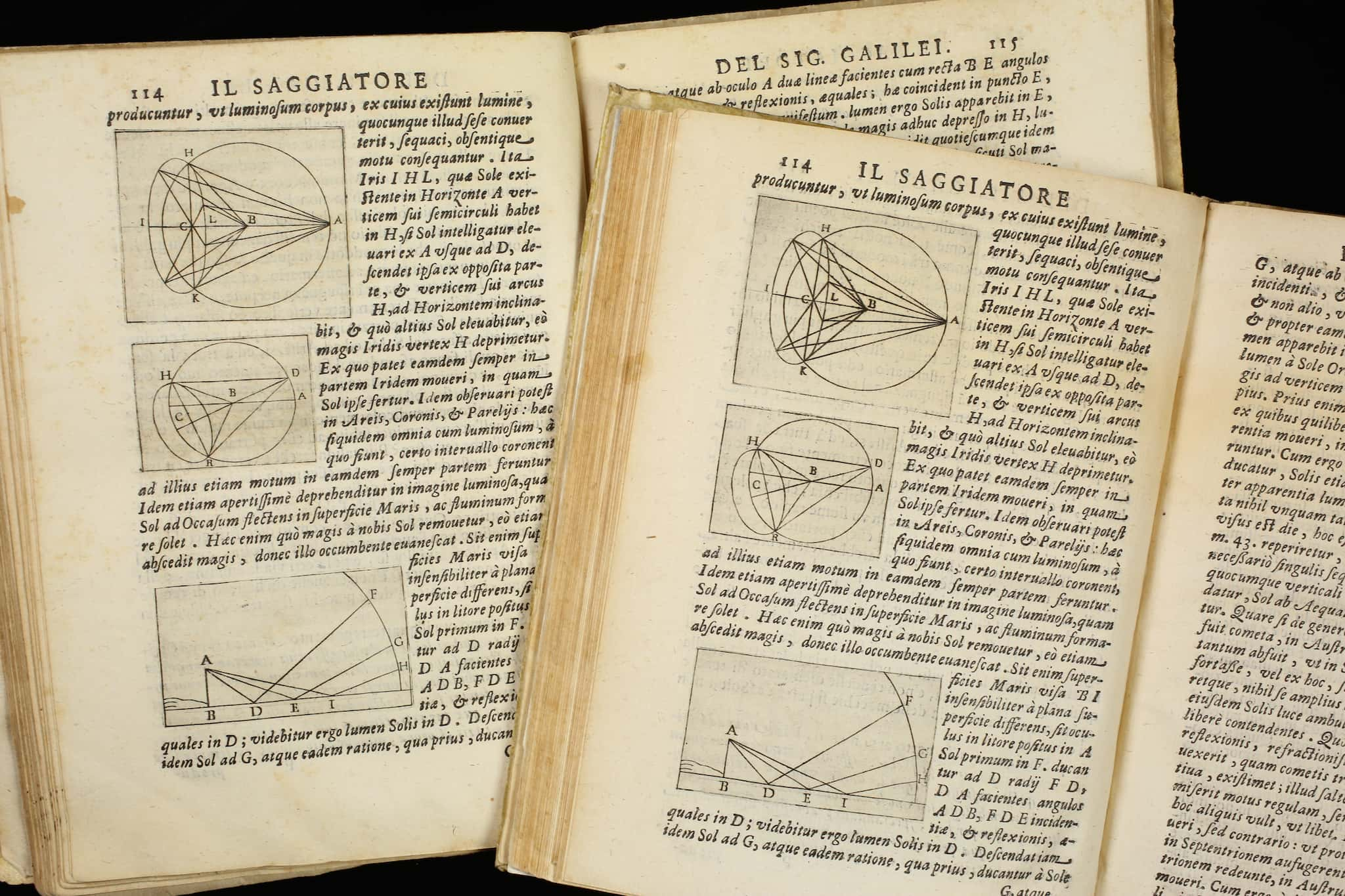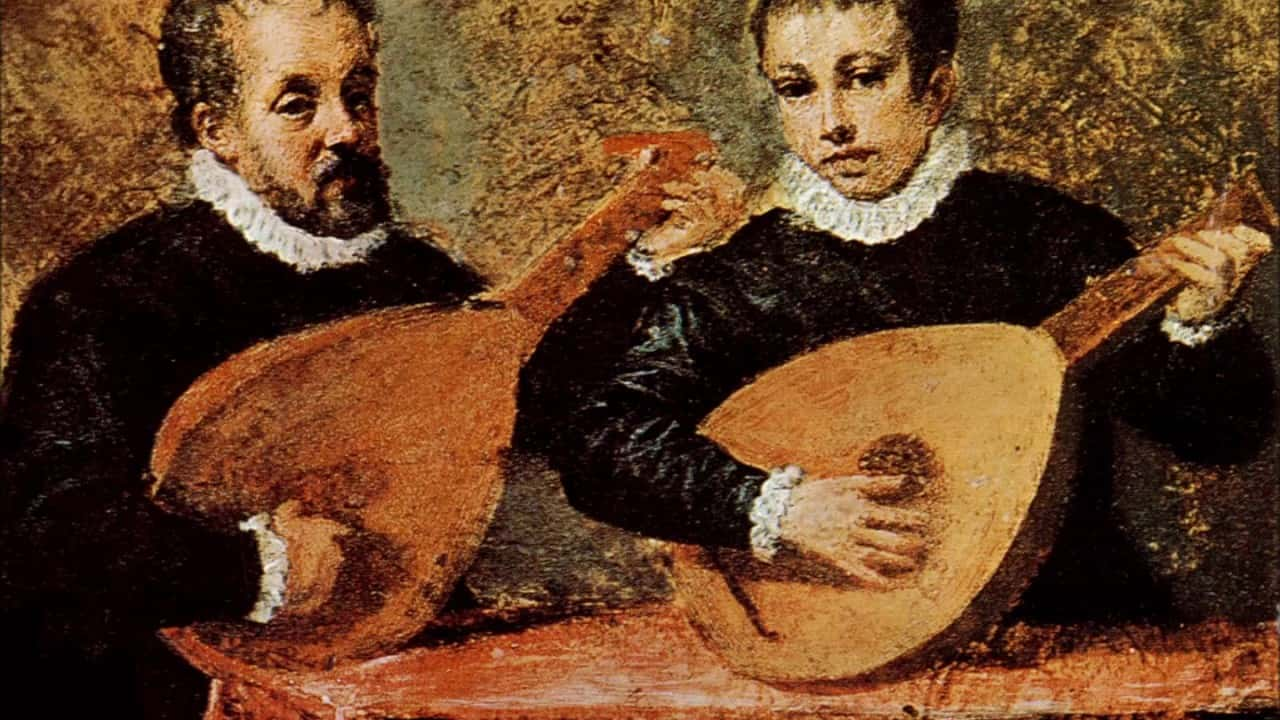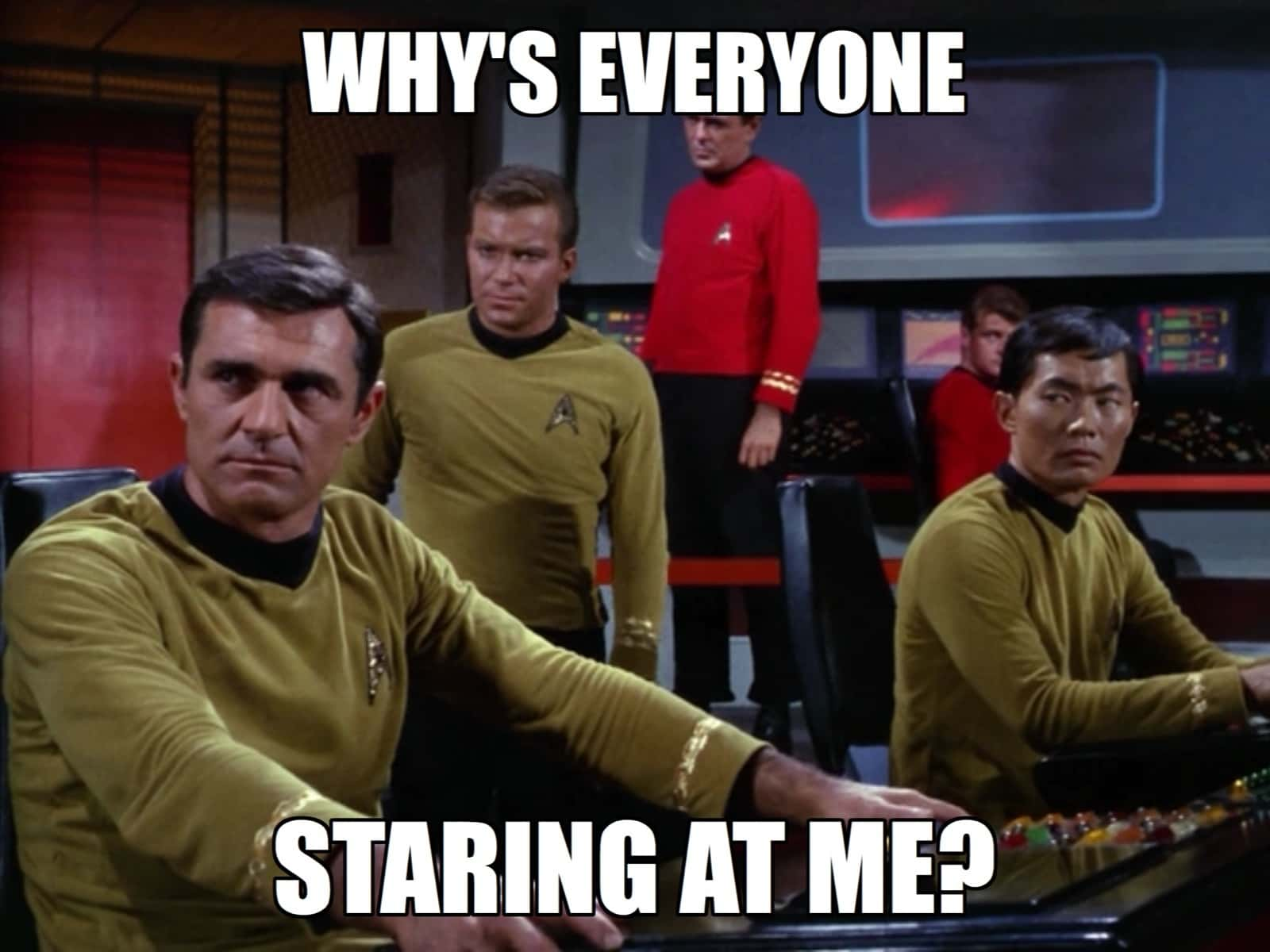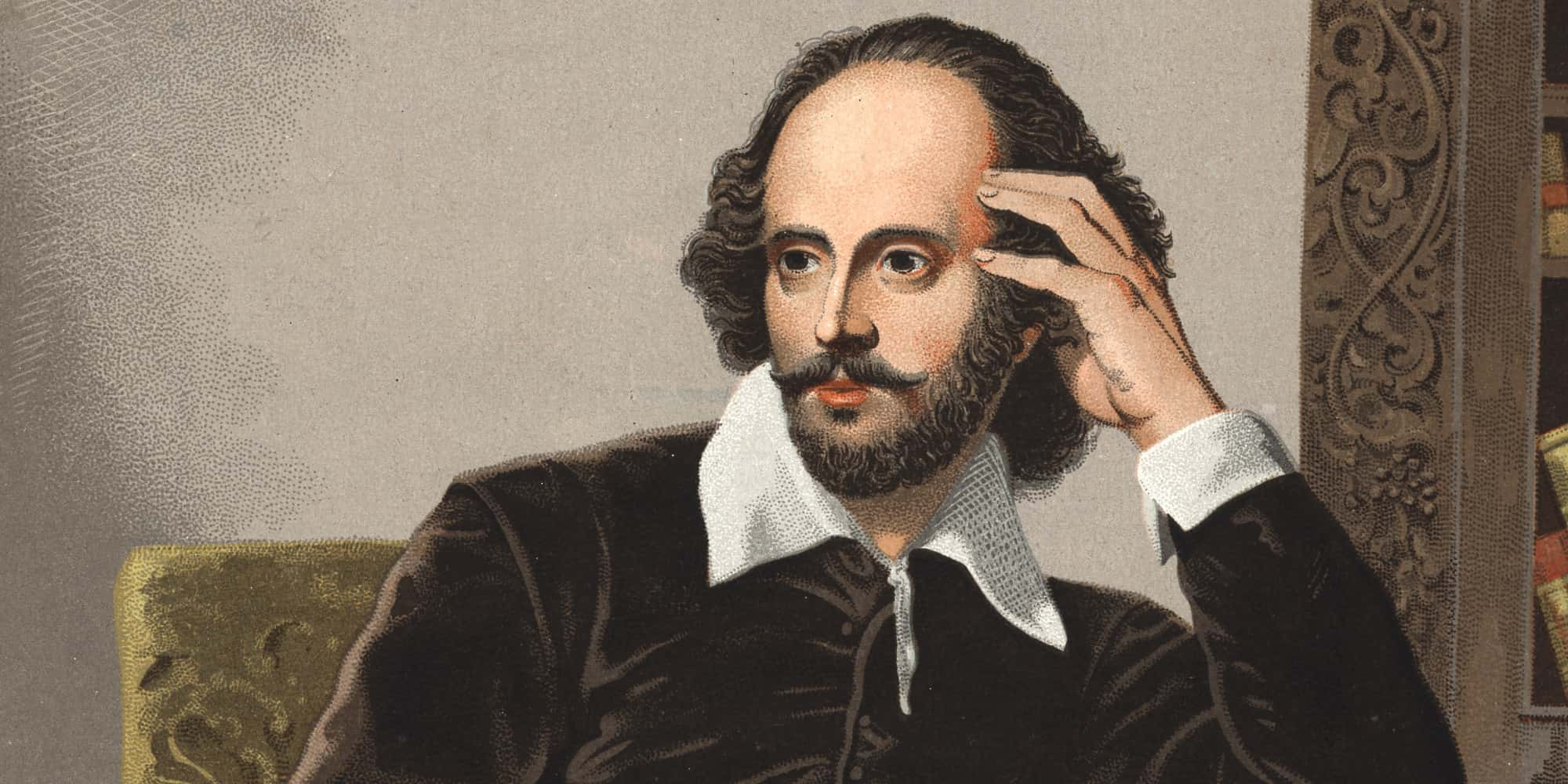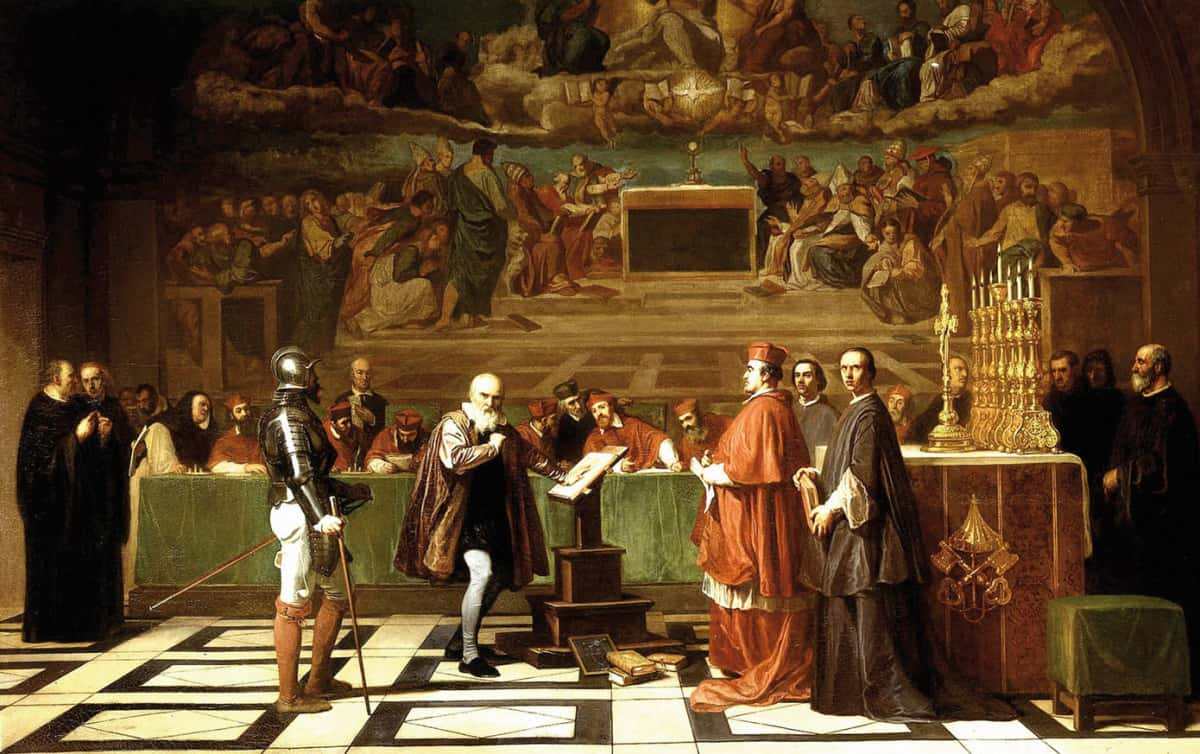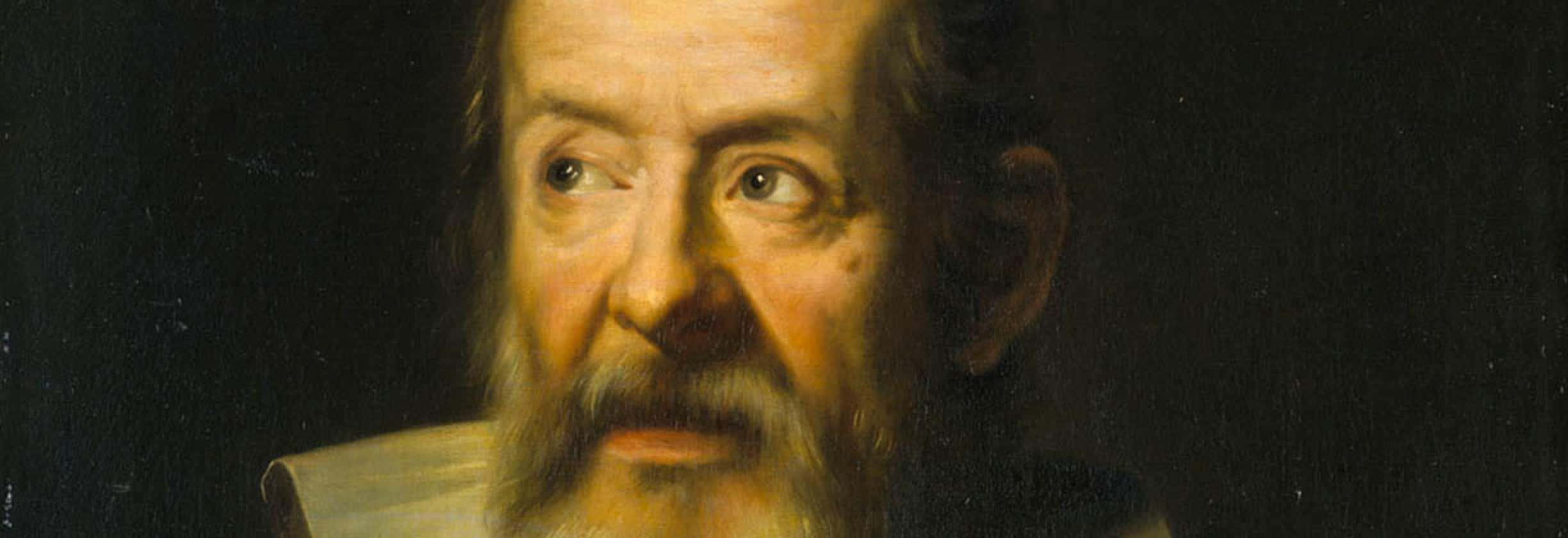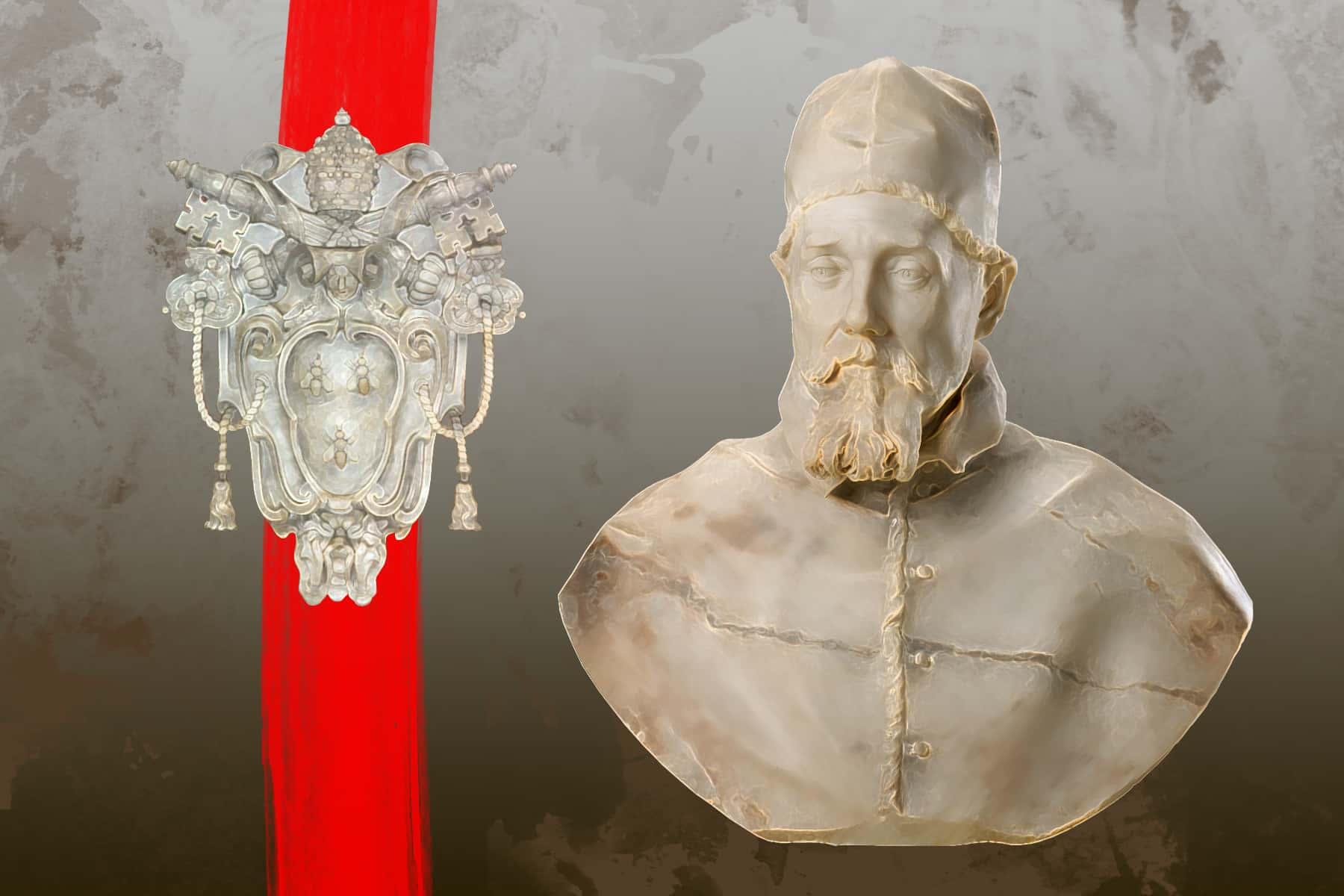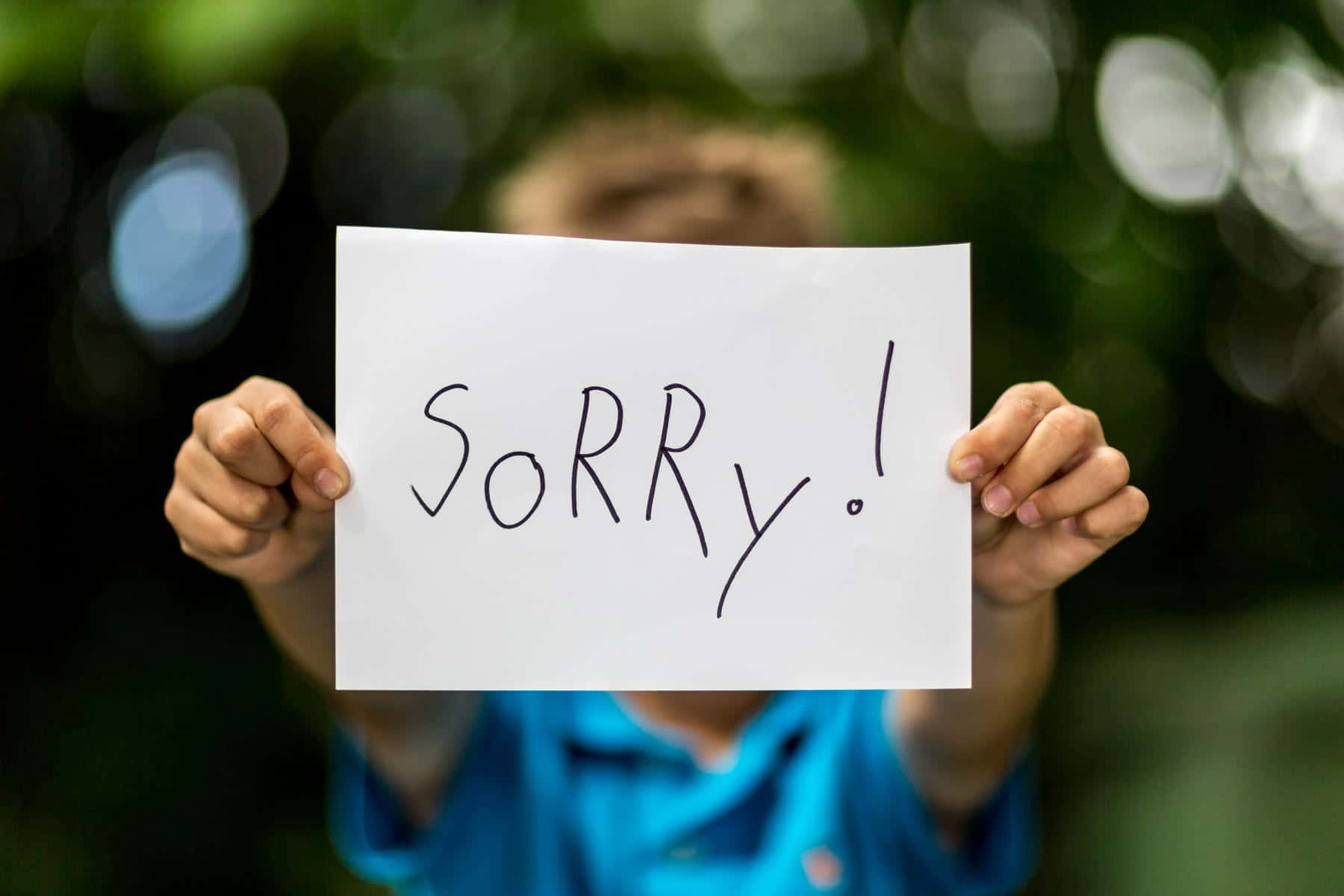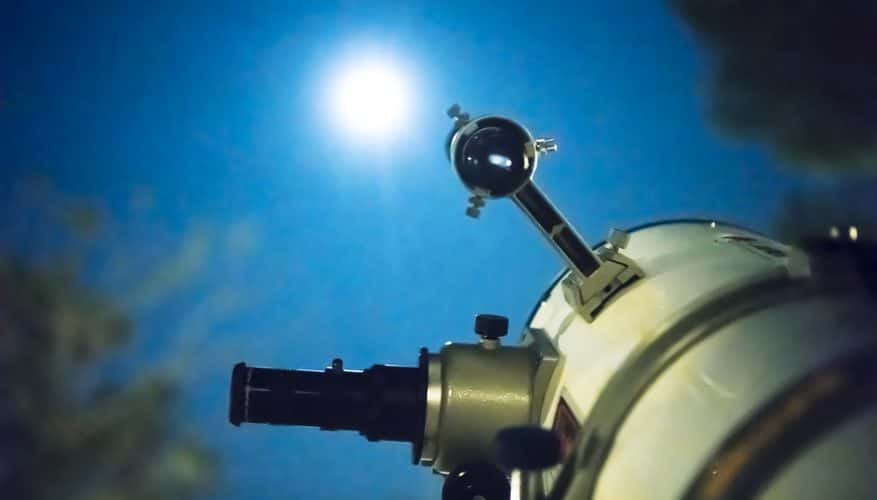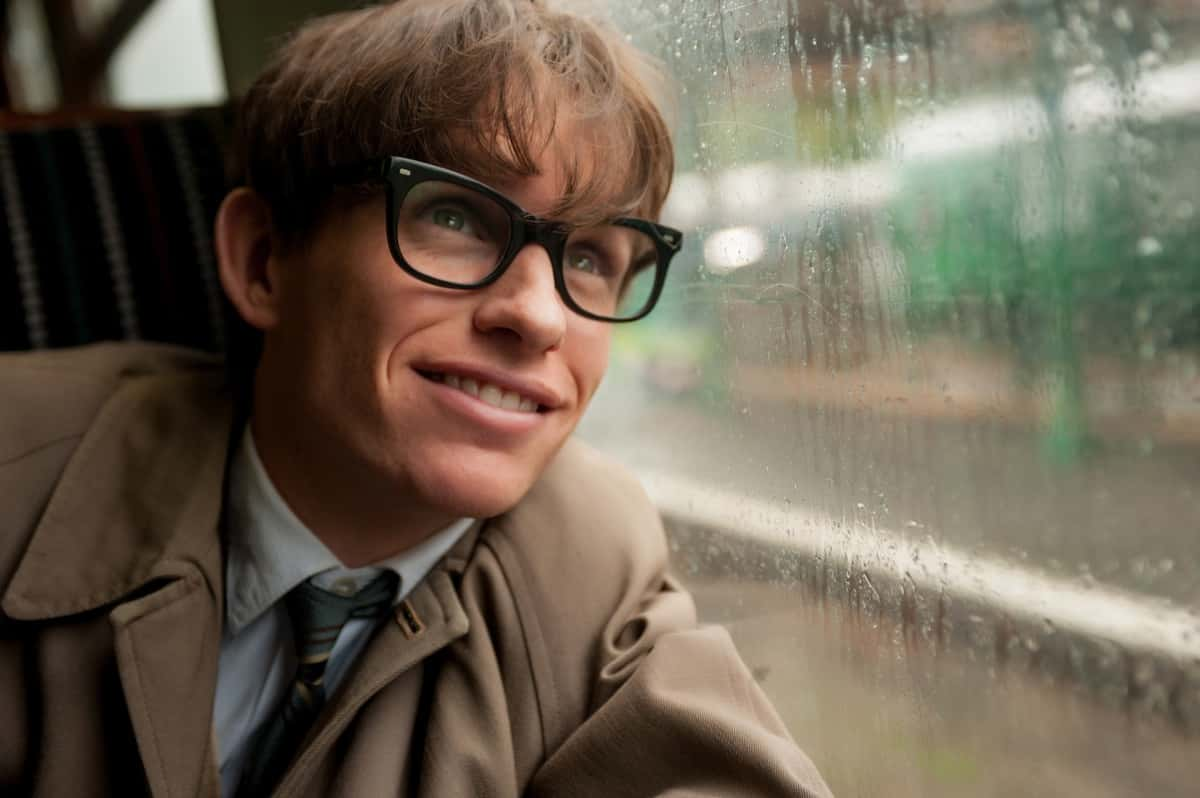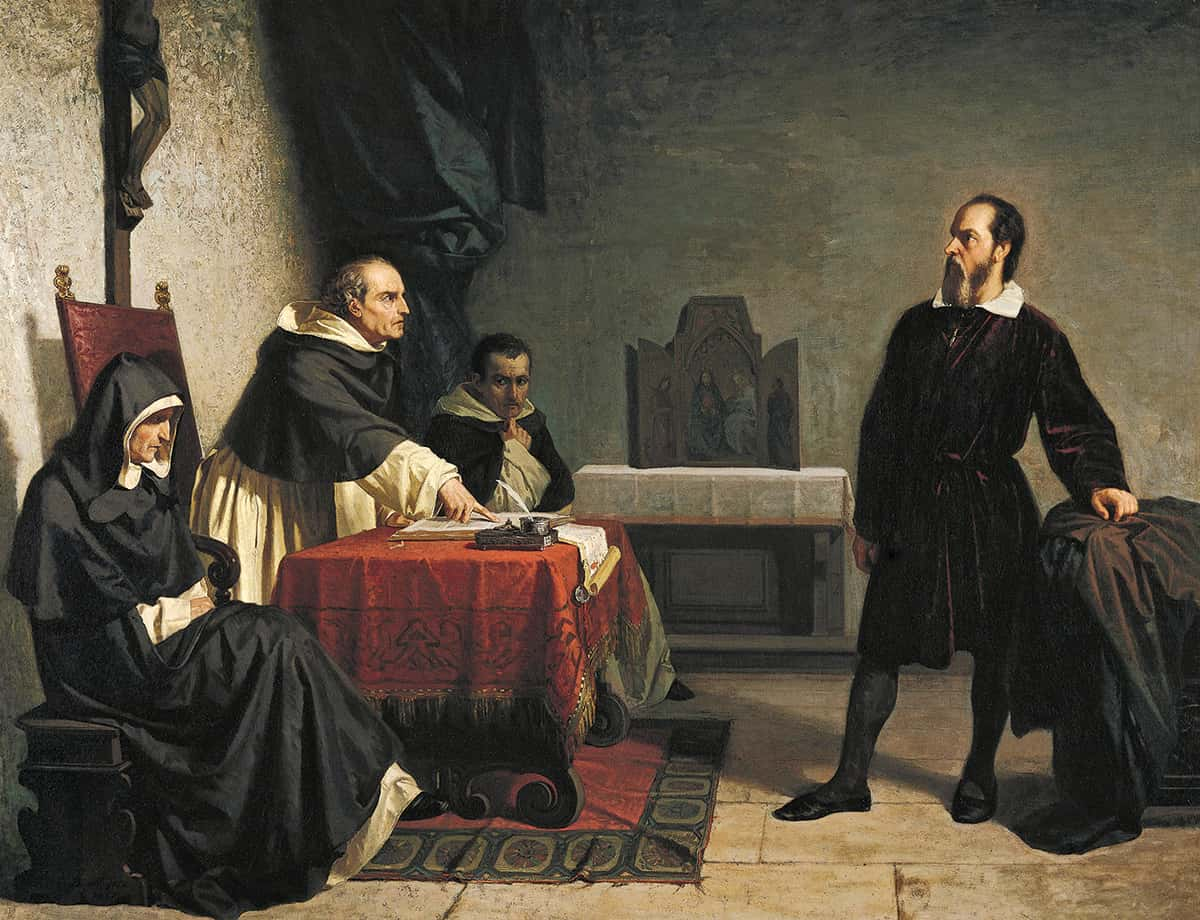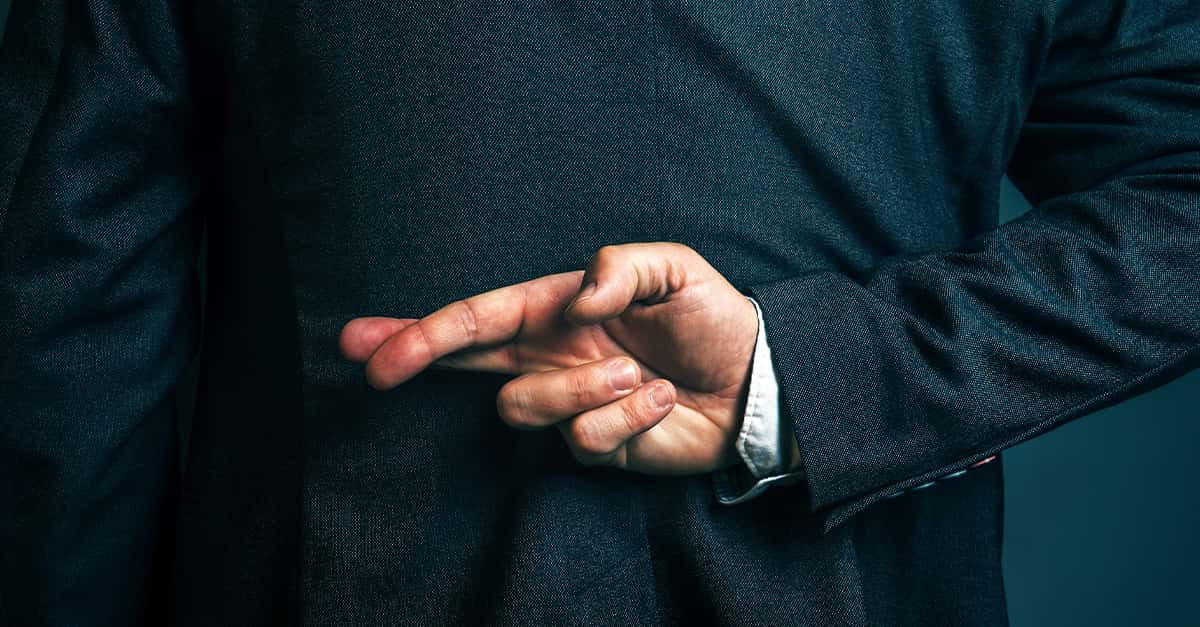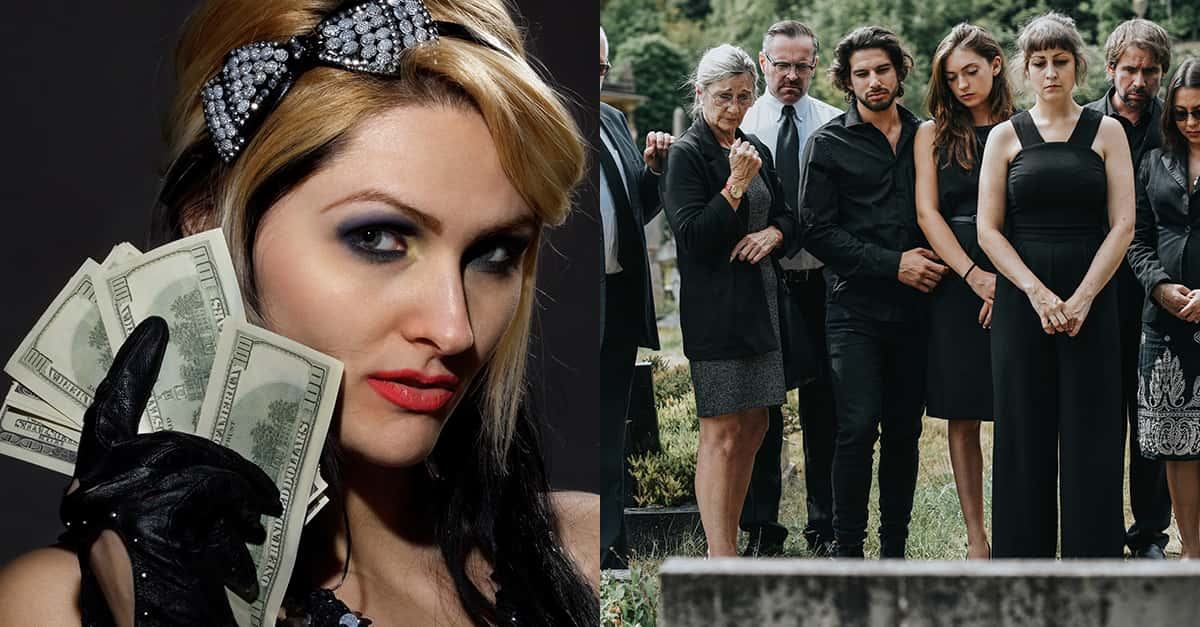"The sun, with all those planets revolving around it and dependent on it, can still ripen a bunch of grapes as if it had nothing else in the universe to do."
Galileo Galilei is one of the most important figures in the development of the scientific revolution that fundamentally changed how we view the world and the universe. Throughout his illustrious life, Galileo developed the scientific method, which led him to make numerous discoveries that openly challenged conventional views of the Earth. Most importantly, thanks to the telescope he designed himself, he was able to prove the theory of heliocentrism that Copernicus famously proposed a century before him. Galileo was able to observe how the Earth and other bodies in our solar system revolve around the Sun and not the obverse. As monumental as his work was, during his lifetime Galileo’s findings were found to be heretical by the Catholic Church and he was placed under house arrest for the rest of his life. Galileo’s work and achievements are worthy of recognition and celebration. Here are some facts about the life and times of one of the world’s greatest minds.
 Epic Rap Battles of History Wiki
Epic Rap Battles of History Wiki
Galileo Galilei Facts
42. The Story Behind the Name
Galileo Galilei’s unique doublespeak name is the result of a popular 16th century Tuscan naming convention that saw the eldest son named after the last name of his parents. His family changed their last name from Bonaiuti to Galileo sometime in the 14th century to honor descendant Galileo Bonaiuti, who was a doctor, professor, and politician. The name Galileo itself is thought to originate from the Latin Galileus, meaning “of Galilee”—a region in Northern Israel that is frequently mentioned in the Bible.
41. Origins of Galileo
Galileo was born on February 15, 1564 in the Italian city of Pisa to Vincenzo and Giulia Galileo. Galileo was the couple’s first of six children, but only one of three to have made it through infancy. Galileo’s father was an accomplished musician, composer, and music theorist specializing in the lute.
40. Galileo’s Children
Galileo had three children with Marina Gamba, all born out of wedlock. Owing to their status as illegitimate children, Galileo’s two daughters—Virginia and Livia—were considered unmarriageable and were sent to the convent to become nuns, adopting the names Sister Maria Celeste and Sister Arcangela, respectively. His son Vincenzo became a lutenist like his grandfather who he was named after and would eventually be legitimatized and named Galileo’s legal heir.
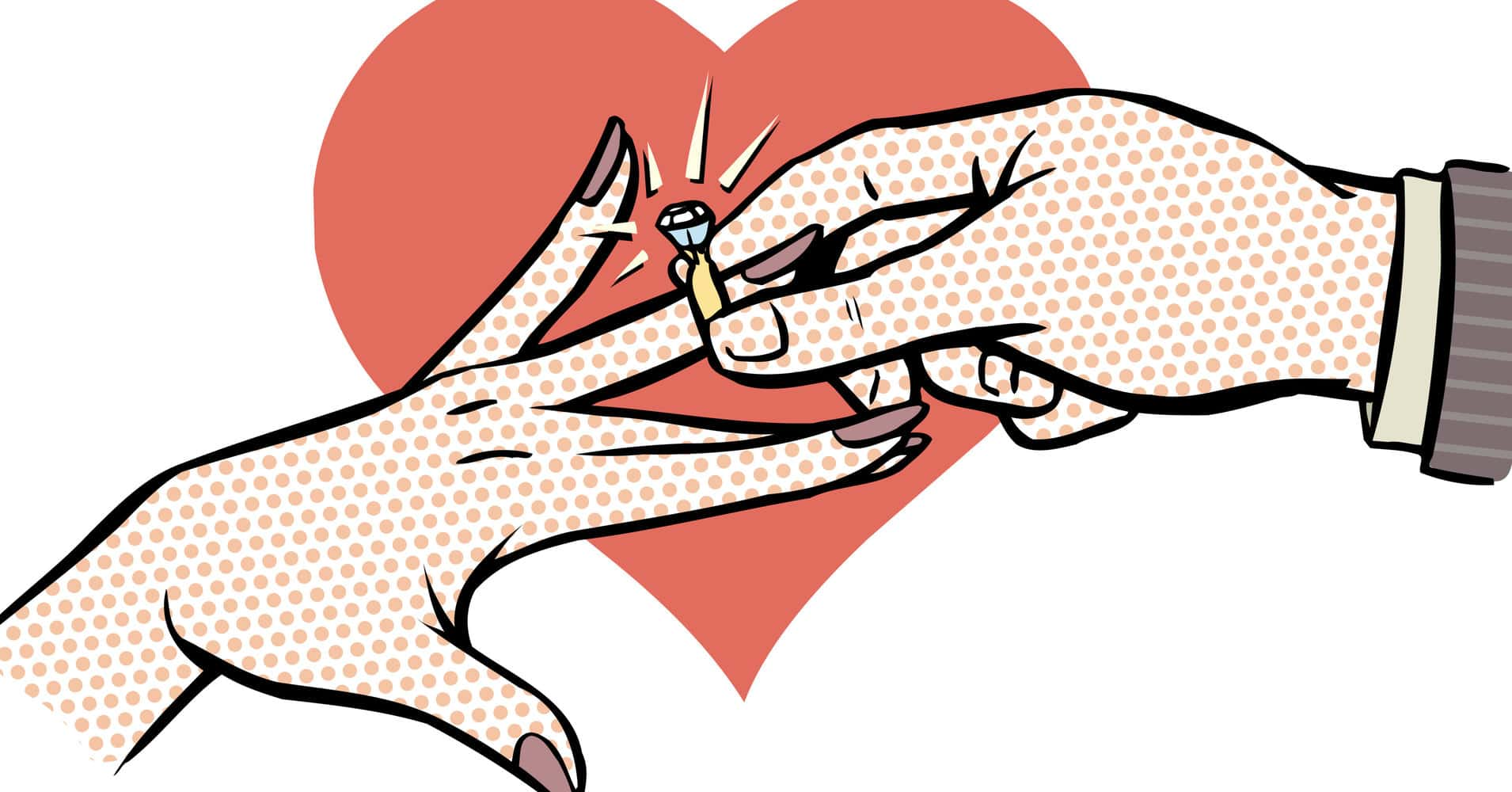 YENİ MOBİ
YENİ MOBİ
Almost!
39. A Very Important Fan
One of Galileo’s biggest admirers was another revolutionary figure in the world of science—Albert Einstein. Einstein felt that Galileo’s importance to the development of the scientific method was a very notable achievement. The man behind the theory of relativity said of Galileo, "All knowledge of reality starts from experience and ends in it. Propositions arrived at by purely logical means are completely empty as regards reality. Because Galileo saw this, and particularly because he drummed it into the scientific world, he is the father of modern physics—indeed, of modern science altogether.”
38. Galileo’s Telescope
Galileo is often falsely credited with inventing the telescope, but the first patents for a telescope device were filed in the Netherlands in the early 1600s. After hearing about this potentially game-changing instrument, Galileo set out to improve and perfect it. Galileo mixed and matched concave and convex lenses, which allowed him to increase the magnification capabilities of his telescope. His telescope led to the discovery of many important findings of our solar system and would fundamentally change our understanding of it.
37. Galileo Coin
As part of the International Year of Astronomy celebrations in 2009, Galileo was featured on a special commemorative 25 Euro coin. The coin features a portrait of Galileo surrounded by images depicting the evolution of the telescope. The obverse features the dark side of the moon, which Galileo was never able to witness, orbited by a satellite.
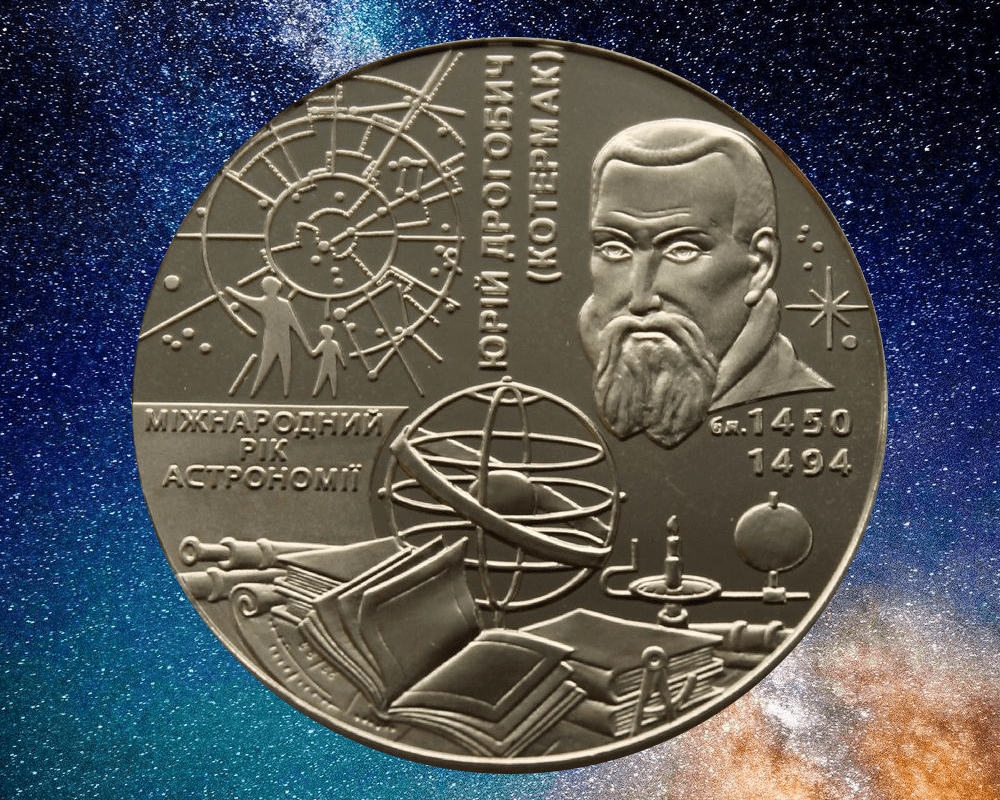
36. Galileo Meets Jupiter
In 1989, NASA launched a spacecraft that would eventually reach the orbit of Jupiter. Fittingly, the spacecraft was named Galileo after the man that discovered four of Jupiter’s moons. After a six-year journey, Galileo reached Jupiter on December 7, 1995, becoming the first spacecraft to orbit the largest planet in our solar system. Some of its notable discoveries included confirming the theory of a liquid ocean underneath the icy surface of the moon Europa and Jupiter’s faint ring system. Galileo completed its mission on September 21, 2003, as it was sent into Jupiter’s atmosphere at a speed of 108,000 mph.
35. Satellite Navigation System
Galileo is also the name of global satellite navigation system being developed by the European Union and European Space Agency. This system is being created so European nations have their own alternative to other navigation systems such as GPS, which is owned and operated by the United States government and Air Force who have the authority to disable it for certain users. Considering it was Galileo that helped position us in our solar system, the name is very appropriate.
34. A Higher Calling
As a young man, Galileo seriously considered becoming a Catholic priest. However, he was persuaded by his father to enroll in medical school instead. Considering his conflicts with the Catholic Church in his later years, this was a rather noteworthy pivot in Galileo’s life.
33. The Moons of Jupiter
Perhaps the most important moment in Galileo’s life was his discovery of the moons of Jupiter. This integral discovery happened on January 7, 1610, when he discovered three celestial objects near Jupiter that he initially thought were stars. He would find a fourth object in the later days and soon discovered that they weren’t stars as they were orbiting the planet. Galileo initially named these objects after his patron Cosimo II de Medici and his brothers, though they later became to be known as the moons Io, Europa, Ganymede, and Callisto. This discovery of moons revolving around another planet caused Galileo to become more accepting of the heliocentric model of our solar system, in which the Sun was at the center and not the Earth.
32. Not Exactly the Prince of Tides
For all his brilliance, Galileo did get one thing wrong. In order to prove and demonstrate the heliocentric model and Earth’s rotation and revolution around the Sun, Galileo wrote the essay “Discourse on the Tides,” in which he theorizes that the Earth’s movements are the reason behind tides. Galileo’s theory was dismissed during his time, as it did not explain why certain places experienced multiple high tides during a single day. It was later proven that the tides were the result of the gravitational forces of the Sun and the Moon. To his credit, Galileo did end his essay with reservations about his theory and hoped that future scientific research could provide further explanation on tides.
31. Paging Dr. Galileo
Galileo was encouraged by his father to study medicine in school, as there were more lucrative financial prospects with a medical degree than other fields of study. At the age of 17, Galileo enrolled at the University of Pisa, with hopes of becoming a doctor. But like many young university students, he would eventually switch majors.
30. Enamored by Numbers
Young Galileo found himself rather bored with his medical studies. After accidentally attending a geometry lecture, he quickly became taken with mathematics. Although he was initially reluctant, Galileo’s father eventually accepted his son’s wish to switch his course of study and major in mathematics and natural philosophy.
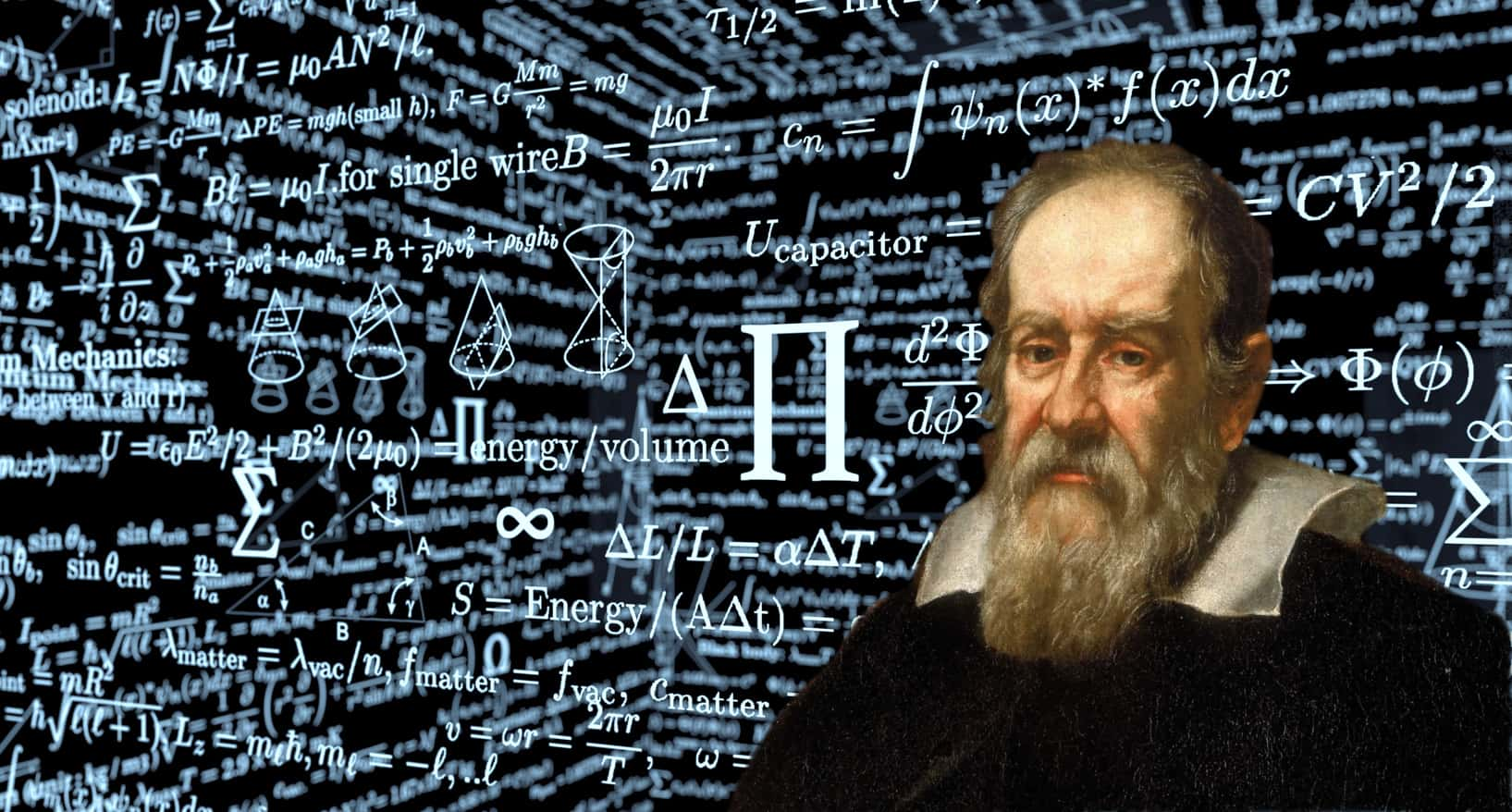
29. The Swing of a Chandelier
In 1581, Galileo made a rather inquisitive observation of a swinging chandelier in a cathedral. Using his own heartbeat as a timer, he realized that it took the chandelier the same time to swing back and forth regardless of how far it swung. He replicated this phenomenon on his own at home with two pendulums and realized that they could keep time. About seventy-five years later, Christiaan Huygens used these same methods to invent the pendulum clock.
28. Art Teacher
In addition to his interests in astronomy, mathematics, and physics, Galileo also had an artistic eye. For a brief period in the 1580s, he was an instructor in Florence’s Accademia delle Arti del Disegno. He taught courses in perspective and chiaroscuro. Galileo would demonstrate his artistic abilities in the illustrations of his scientific books, most notably in his 1610 text The Starry Messenger, which included sketches of his lunar observations that were controversial for their crater-filled surface, which went against the commonly held view of a pristine and unblemished moon.
27. The Stars of the Milky Way
Thanks to the magnification capabilities of his telescope, Galileo discovered that our galaxy the Milky Way is comprised of many clustered stars. Before Galileo and his telescope, the prevailing view was that the Milky Way was comprised of nebulae, as with the naked eye the close grouping of stars appear to be cloudy and hazy.
26. Finding the Right Angles
From 1595 to 1598, Galileo was hard at work designing and redesigning several forms of geometric and military compasses. These compasses helped both gunners and surveyors. On the battlefield, the compass was able to accurately elevate cannons and effectively calculate the amount of gunpowder required for each cannonballs. For surveying land, it allowed for the construction of any shape of polygon, making measuring the area of a given parcel of land much easier.
25. An Early Thermometer
In 1593, Galileo created a thermoscope, an instrument that demonstrates changes in temperature; think of it as a precursor to the thermometer. The device included a slender tube placed in a container of water. Water would either ascend or descend in the tube depending on the temperature.
24. Saturn's Rings
Galileo was the first person to notice Saturn’s encircling rings; however, he actually didn’t know that they were rings. When Galileo observed the planet with the rings directly aligned with Earth, he believed that two large bodies, possibly planets, surrounded Saturn. When the rings weren’t aligned to Earth, he thought the bodies had disappeared. Ironically, it was once again Christiaan Huygens, who similarly expanded on Galileo’s pendulum observations to make a pendulum clock, who would confirm the bodies were actually rings.
23. An Unknown Discovery
In 1612, Galileo made an observation of an unidentified object that he initially thought was a fixed star. He was unaware that he had actually observed the planet Neptune, most likely the first person ever to do so as the furthest planet in our solar system (sorry, Pluto fans) is not visible to the naked eye. The location of this then-unidentified body, as Galileo noted in his journals, corresponded with Neptune’s position in our solar system. Johann Galle and Urbain Le Verrier would officially discover Neptune more than 200 years after Galileo’s initial observation.
22. The Tower Story Leans False
An often-repeated anecdote from Galileo’s life is the story of an experiment he conducted off the top of the Leaning Tower of Pisa. It is said that Galileo dropped balls of different masses to prove that when objects dropped from the same height fall to the ground at the same speed. This disproved Aristotle’s theory that heavier objects traveled faster than lighter ones. Historians now believe that these physical experiments never took place, but Galileo does make reference to the claims behind these supposed experiments in his books.
21. Seeing Sound
One of the lesser-known discoveries of Galileo is his work on sound frequency. Galileo came to realize that sound traveled in waves after conducting an experiment where he would scrape a bronze plate with a chisel at different speeds. As his father was a musician, this discovery would surely make the senior Galilei very proud.
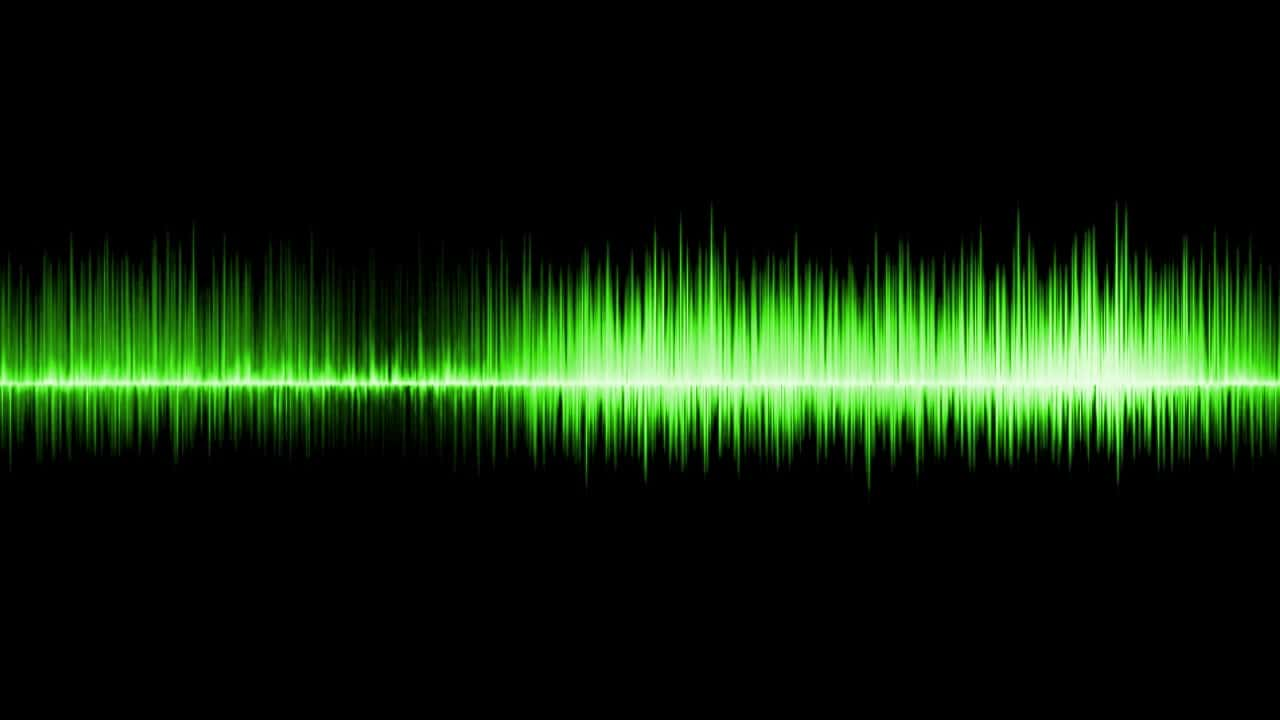 Youtube
Youtube
20. 2009: An Astronomy Odyssey
In honor of the 400th anniversary of Galileo’s first recorded observations with his telescope and the release of Johannes Kepler’s book Astronomia nova, the United Nations declared 2009 to be the International Year of Astronomy. Events throughout the year were held all over the world to promote the importance of astronomy and scientific education in general. One notable event was the White House Astronomy Night, held on October 7, 2009. Over 20 telescopes were positioned across the South Lawn of the White House, as well numerous displays related to outer space.
19. Amongst the Greats
Galileo is buried in the Basilica di Santa Croce in Florence, Italy. The church dates back to the 14th century and is also the final resting ground for other great Italians like Michelangelo, Machiavelli, and Rossini. As a result, the basilica is commonly referred to as the Tempio dell'Itale Glorie (Temple of the Italian Glories).
18. Classic Rock Anthem
Galileo is notably referenced in one of the most popular songs of all time—“Bohemian Rhapsody” by British rock band Queen. The line “(Galileo) Galileo (Galileo) Galileo. Galileo Figaro magnifico” appears in the song’s third “operatic” verse and reverberates from karaoke halls across the universe.
17. The Assayer
One of Galileo’s most notable texts was The Assayer, which was published 1623. In groundbreaking work, Galileo outlines the importance of the scientific method and experiments as opposed to the prevailing concept of scholasticism, which relied on making assumptions out of observations. The book was a direct challenge to the works of Orazio Grassi, who greatly relied on his religious beliefs to back up his scientific inquiries and was embroiled in a years long feud with Galileo.
16. Financial Burdens
One of the impetuses for Galileo trying his hand at so many different scientific disciplines during his young adulthood was his father’s death. After his father died, Gallileo would unfortunately inherit some of old man’s financial obligations. Most notably, Galileo was entrusted to take care of his younger brother Michelagnolo. Galileo found himself paying for his younger brother’s musical endeavors and his share of the unpaid dowries to their brothers-in-law. Luckily, Galileo’s work on military and geometric compasses did make him a considerable amount of money.
15. What Not to Wear
One of the first times Galileo brushed up against authority figures was during his time teaching at the University of Pisa. Galileo was not a fan of the mandatory black robes the instructors had to wear and thought the practice was pretentious. Due to his insubordination, his superiors at the university repeatedly hit him with pricey fines.
14. The Bard a Fan of Galileo?
Many people consider a scene from Shakespeare’s play Cymbeline to be a direct reference to Galileo’s most notable discovery. During the play, the god Jupiter descends from the heavens and four ghosts suddenly appear dancing around the ancient deity. This may be a reference to Galileo’s discovery of four of the planet Jupiter’s moons. Curiously, both Shakespeare and Galileo were born in 1564.
13. His Own Museum
In 2010, Florence’s Istituto e Museo di Storia della Scienza was renamed as the Museo Galileo. This museum houses many important scientific instruments that were once the property of the Medici family. This collection includes many of the tools and devices used by Galileo during his extraordinary life, including the telescopes that transformed our understanding of the universe.
12. A Fitting Place for a Galileo-Influenced Experiment
During the Apollo 15 lunar mission, American astronaut David Scott performed Galileo’s theory of falling objects on the Moon. Scott dropped a hammer and a feather at the same time and sure enough they fell to the lunar surface at the same time. As he performed the experiment, Scott remarked, “I guess one of the reasons we got here today was because of a gentleman named Galileo a long time ago, who made a rather significant discovery about falling objects in gravity fields.” After the items dropped at the same time, Scott quipped, “How about that? Mr. Galileo was correct in his findings.”
11. Once Friend, Then Nemesis
Before he would become Pope Urban VIII, the then-Cardinal Maffeo Barberini actually enjoyed a good relationship with Galileo. Things would turn sour upon the publication of Galileo’s book Dialogue Concerning the Two Chief World Systems. Pope Urban VIII urged Galileo to write a book that presented the competing ideas of heliocentrism and geocentrism. While he did this, the character advocating the Pope’s own geocentrist views seemed to be presented as a fool or simpleton. Although this wasn’t Galileo’s intention, the book greatly offended the Pope and set in motion Galileo’s troubles with the Catholic Church.
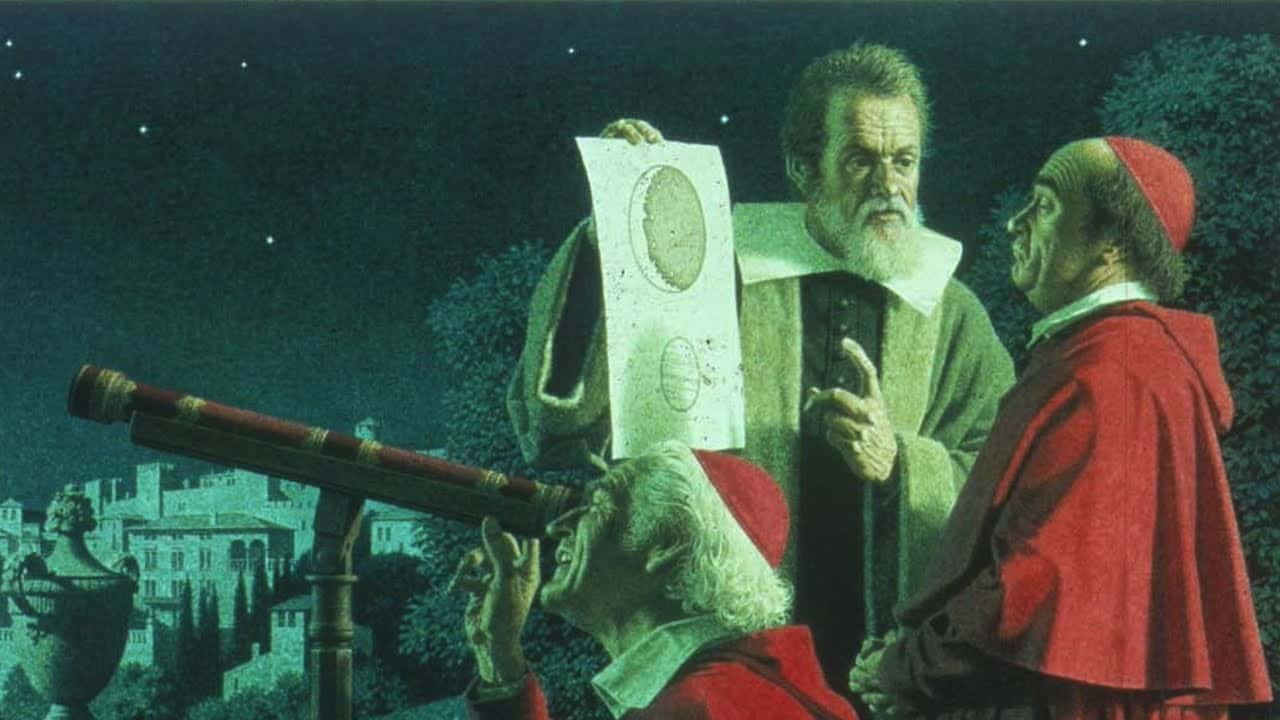 Youtube
Youtube
10. Elwood City's Favorite Scientist
Galileo has made a couple appearances in the popular children’s animated series Arthur. In one episode, lead character Arthur imagines Galileo must have had strict parents like his own, who enforced strict bedtimes. Most notably, in the episode “Dad’s Dessert Dilemma,” Arthur and his third grade class have a birthday party for Galileo and for the occasion Arthur’s dad bakes a cake in the shape of the Leaning Tower of Pisa.
 Youtube
Youtube
9. The Catholic Church v. Galileo
The Roman Catholic Inquisition first tried Galileo in 1616. They ruled his heliocentrism as heretical and banned books that advocated for this theory. Galileo largely complied with this judgment, but his book Dialogue Concerning the Two Chief World Systems was thought to implicitly defend heliocentrism and thus, he was brought to the Inquisition once again in 1633. This time Galileo was found guilty of heresy and sentenced to house arrest for the rest of his life.
8. Under House Arrest
Galileo spent the final years of his life under house arrest. As part of his sentence, he was ordered to recite the seven penitential psalms once a week for three years. His daughter Maria Celeste was later granted permission to perform the psalms for him. Galileo would also spend his arrest writing Two New Sciences, which compiled his life’s work on two fields of physics, kinematics and strength of materials.
 Youtube
Youtube
7. Galileo’s Demise
Galileo died on January 8, 1642 in his villa in Arcteri, just outside of Florence; he was 77. Galileo’s final years were marked by a series of ailments. He had become completely blind by 1638 and was also suffering from insomnia and a hernia. In the lead up to his death, Galileo experienced fever and heart palpitations.
6. Burial Issues
Being a controversial figure, some issues did arise surrounding Galileo’s burial. The Grand Duke of Tuscany had planned on burying him in a special tomb at the Basilica di Santa Croce. However, these plans were halted by Pope Urban VIII and Galileo was buried in a chapel outside of the Basilica’s main building. His body was eventually moved to the main building, with a specially constructed memorial nearly a century later. During the transport, three fingers and a tooth were removed from Galileo’s remains.
Pope Urban VIII
5. Church Tries to Make Nice
In the centuries since Galileo’s troubles with the Roman Catholic Church, many popes have attempted to rectify and regret their handling of the situation. Most notable in 1992, Pope John Paul II issued an official declaration acknowledging mistakes made by the Church in how they treated Galileo and his findings. The declaration was the result of a study conducted by the Pontifical Council for Culture.
4. Paving the Way for Galileo
Galileo’s astronomical findings validated the theory of heliocentrism, which states that the Earth and other planets in the system revolve around the sun. Heliocentrism refutes geocentrism, which supposes that the Earth is at the center of the system. One of the first major proponents of the heliocentric model was Danish astronomer Copernicus. Copernicus’ work greatly influenced and shaped Galileo’s findings. For instance, Galileo’s discovery of Venus’s various phases was first confirmed as a possibility in Copernicus.
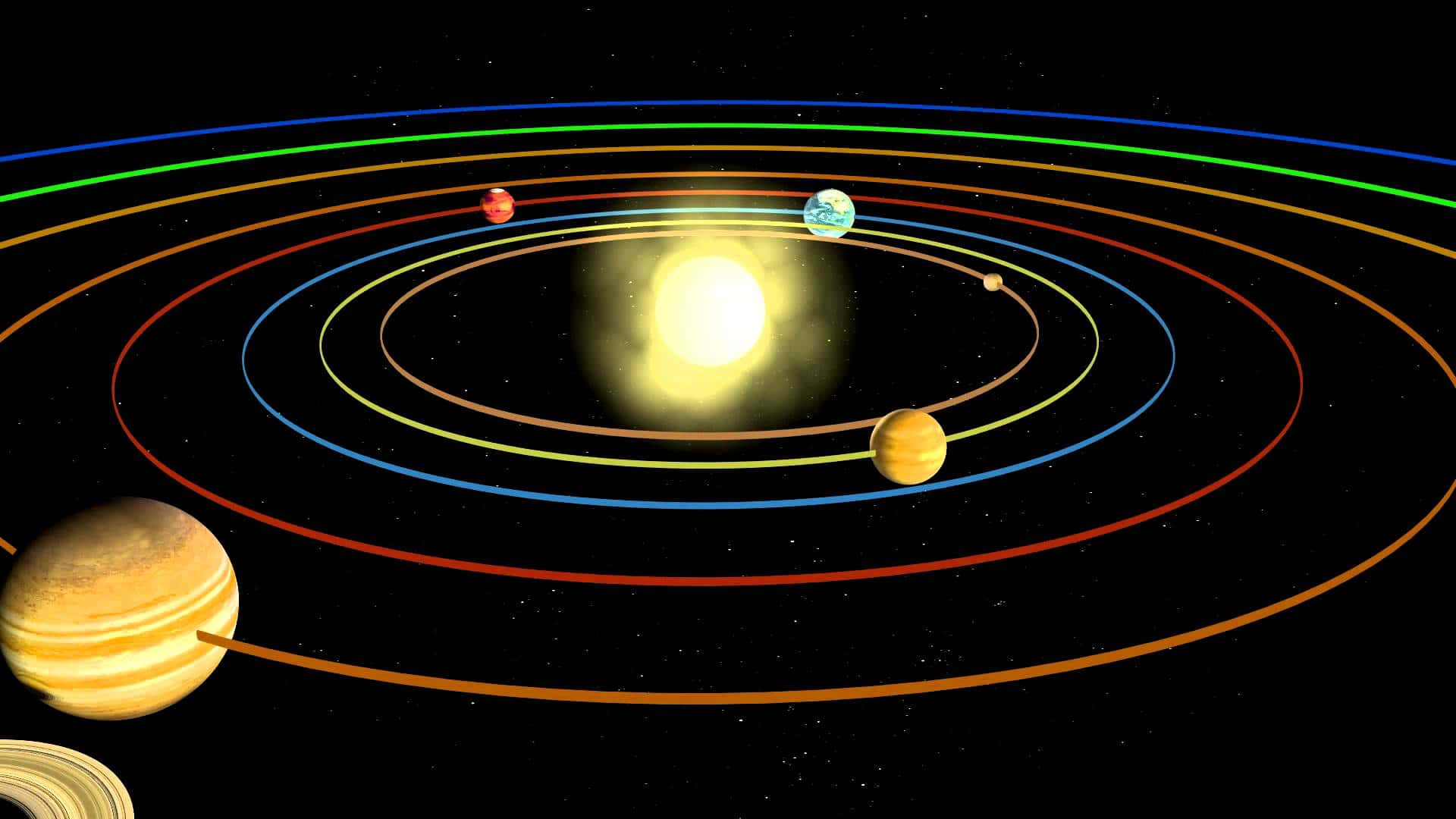 Youtube
Youtube
3. The Blind Truth
A prevailing urban legend surrounding Galileo is that he became blind from extensively observing the sun. In reality, Galileo’s worsening vision was the result of an unfortunate combination of cataracts and glaucoma. In fact, Galileo only ever looked at the sun directly at sunrise and sunset, before eventually only using projections, both of which would have been safe, even with the primitive telescopes of his day.
2. Great Minds Live Alike
When Stephen Hawking died in early 2018, many people noticed interesting parallels with his birth and death in relation to two other great scientific thinkers. Hawking died on March 14, which is commonly referred to as Pi Day and is also the birthday of Albert Einstein, who was born on March 14, 1879. Furthermore, Hawking was born on January 8, 1942, which also happened to be the 300th anniversary of Galileo’s death. Considering the importance of all three of these men in understanding our position in the universe, it’s rather fascinating to see how they are all connected.
1. "and yet it moves."
After being forced to renounce his position that the Earth revolves around the Sun, Galileo is thought to have rebelliously muttered the phrase “E pur si muove,” which translates from the Italian to “And yet it moves.” This anecdote is included in the 18th century book The Italian Library by Giuseppe Baretti. The original Italian phrase was also depicted in a portrait of Galileo, thought to be painted during his lifetime, where it appears scribbled on a wall behind Galileo.
Sources: 1, 2, 3, 4, 5, 6, 7, 8, 9, 10, 11, 12, 13, 14, 15, 16, 17, 18, 19, 20, 21, 22, 23, 24, 25, 26, 27


